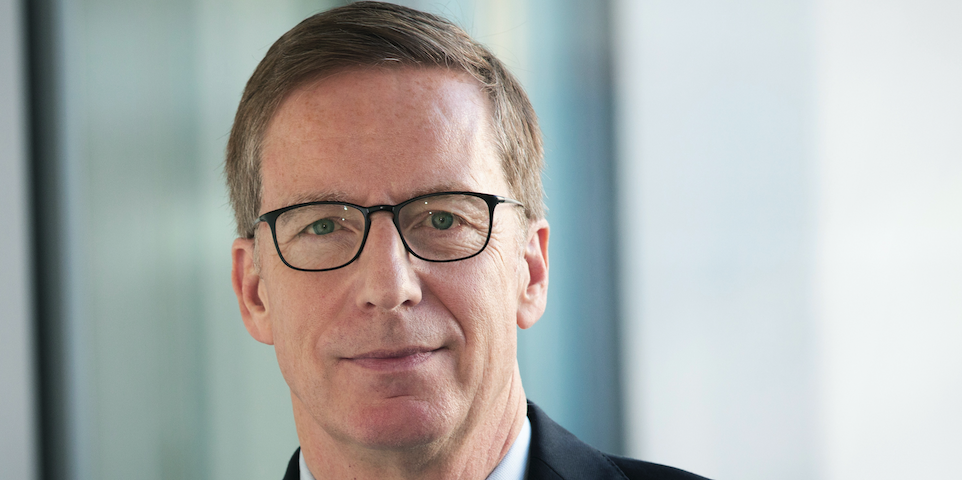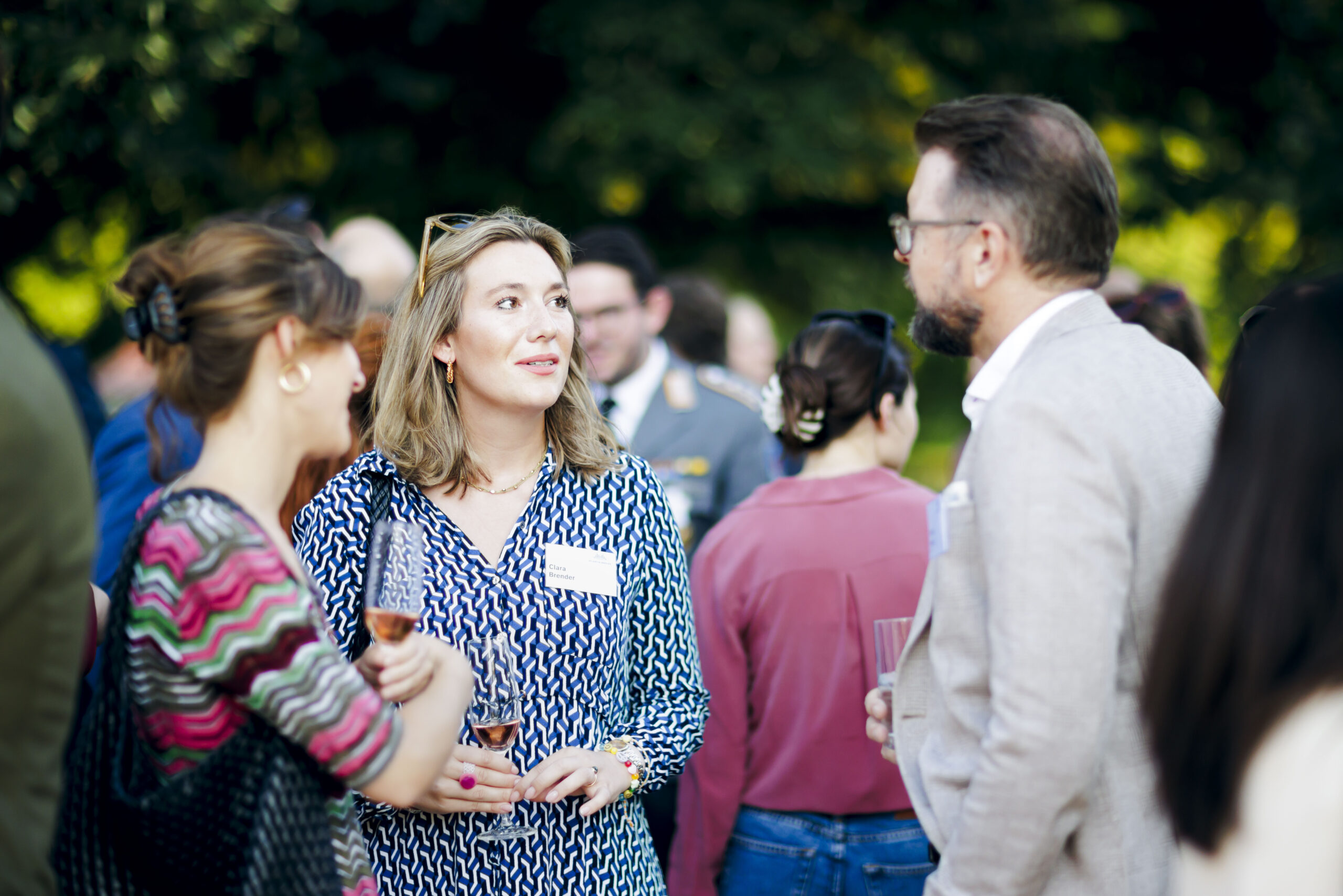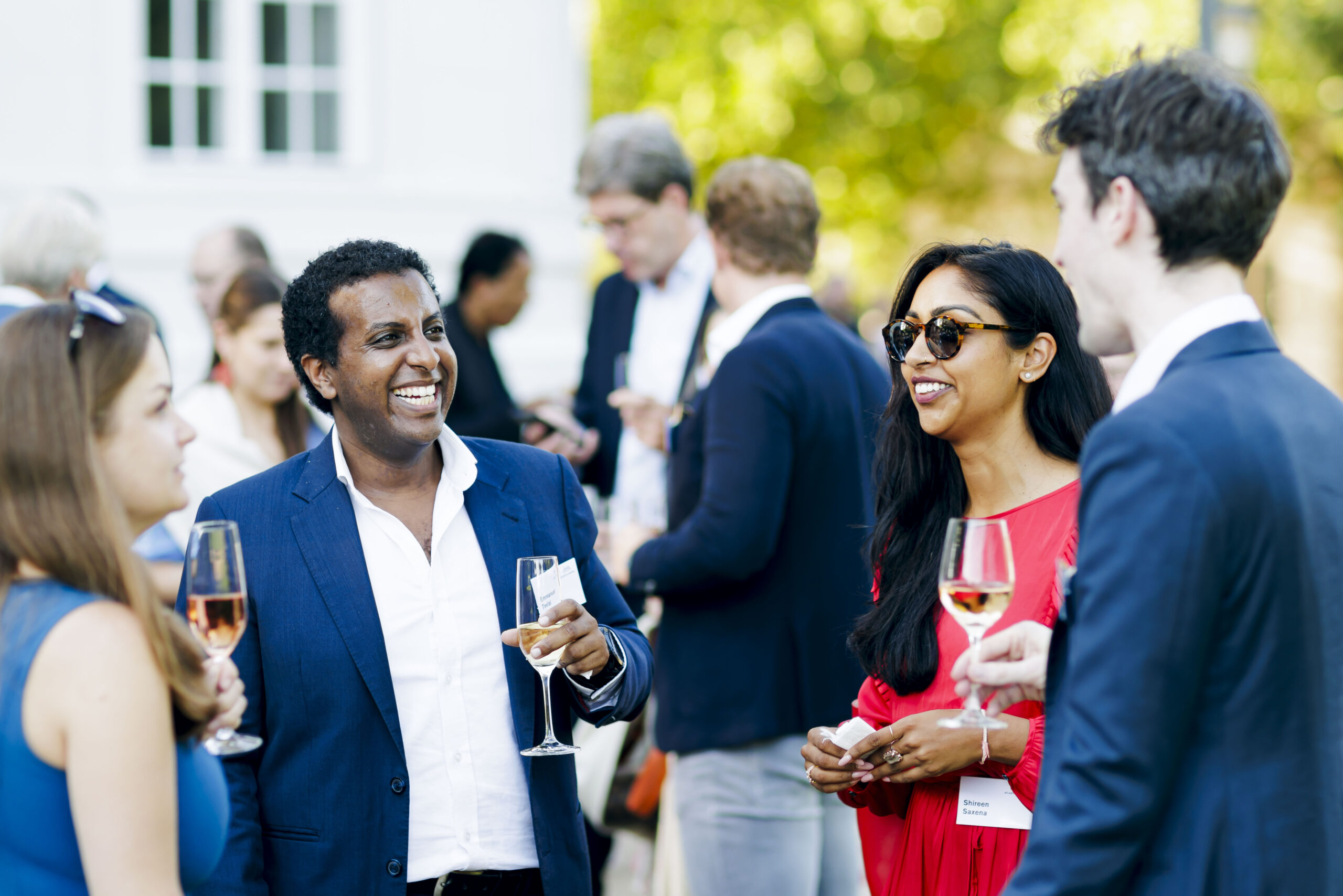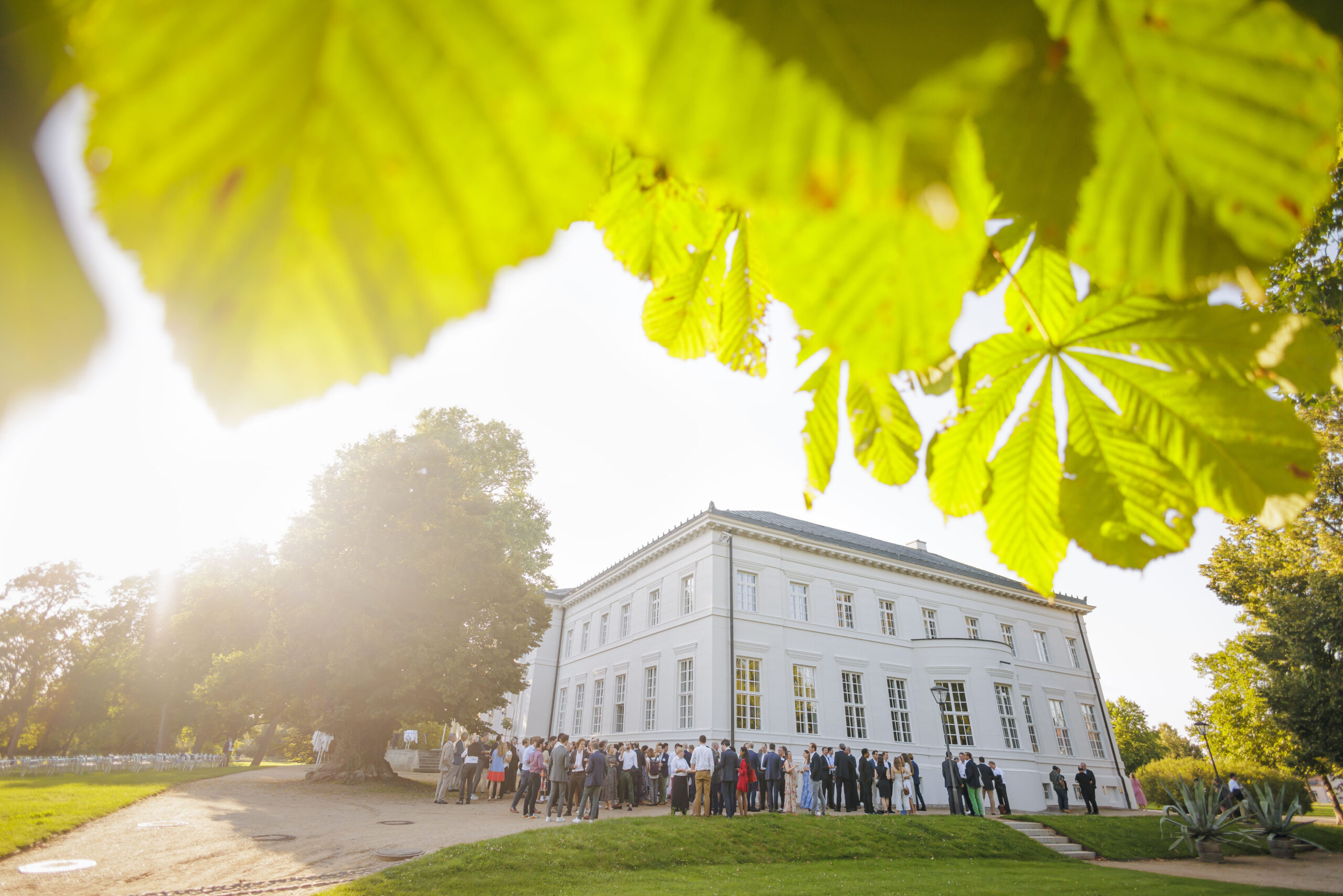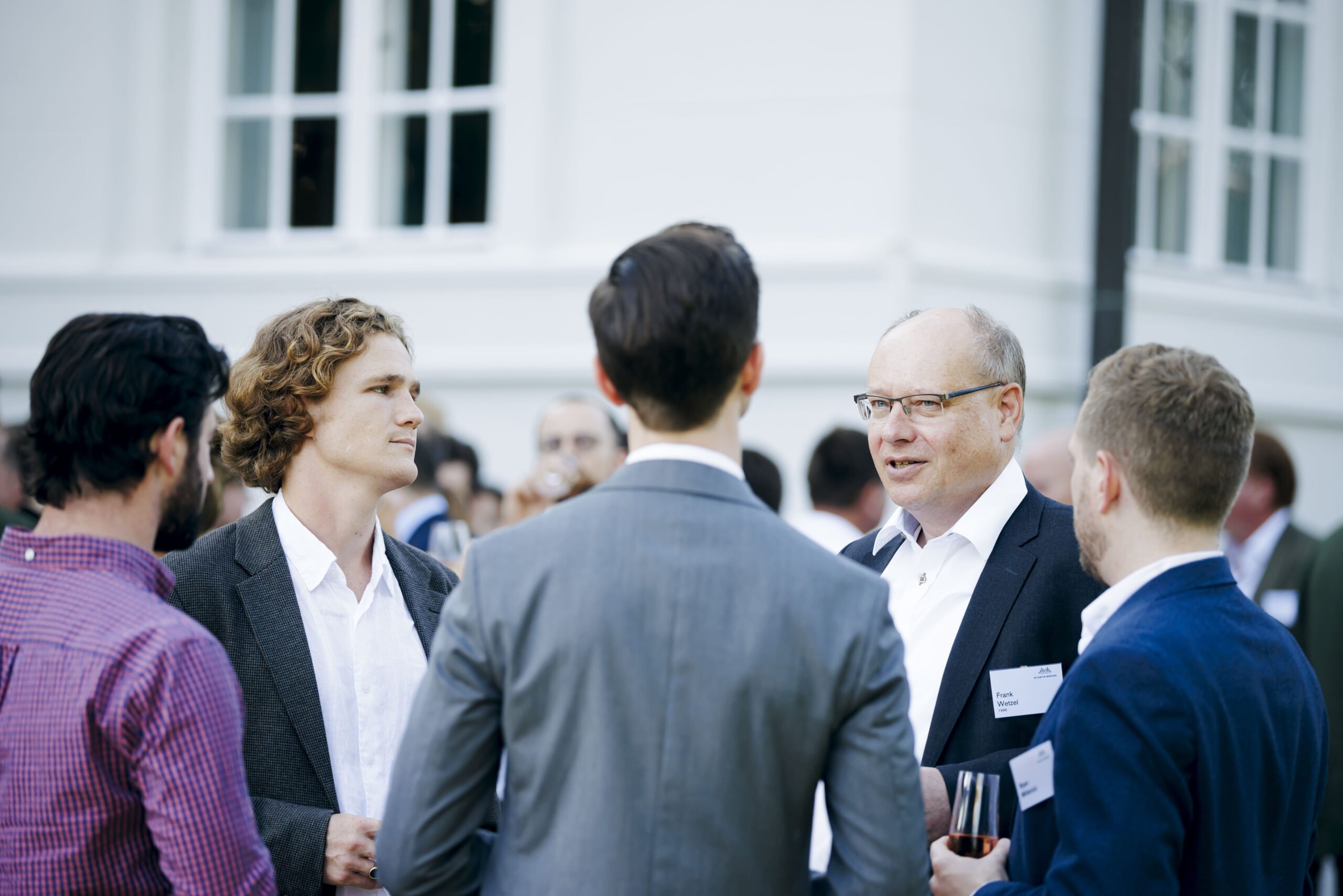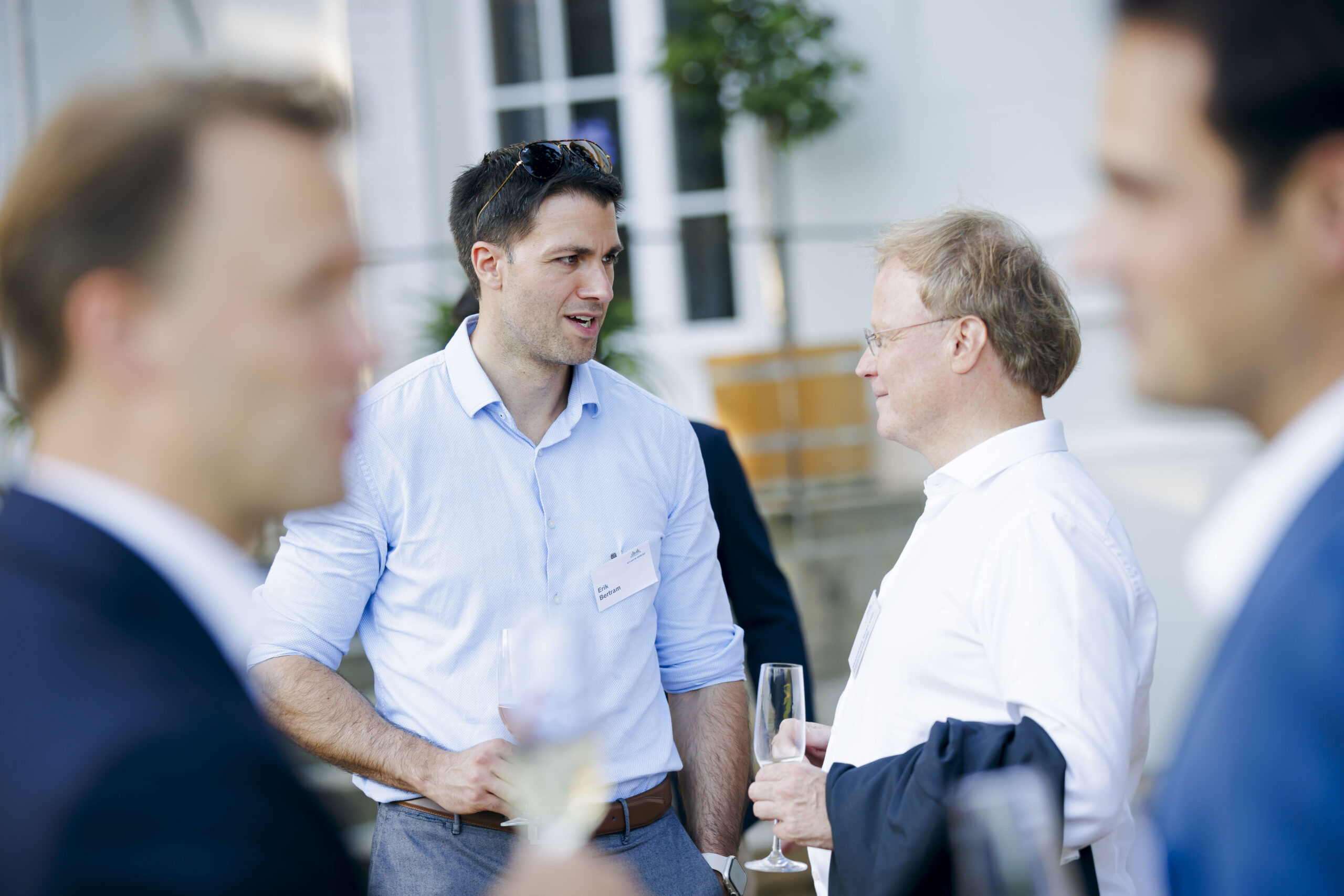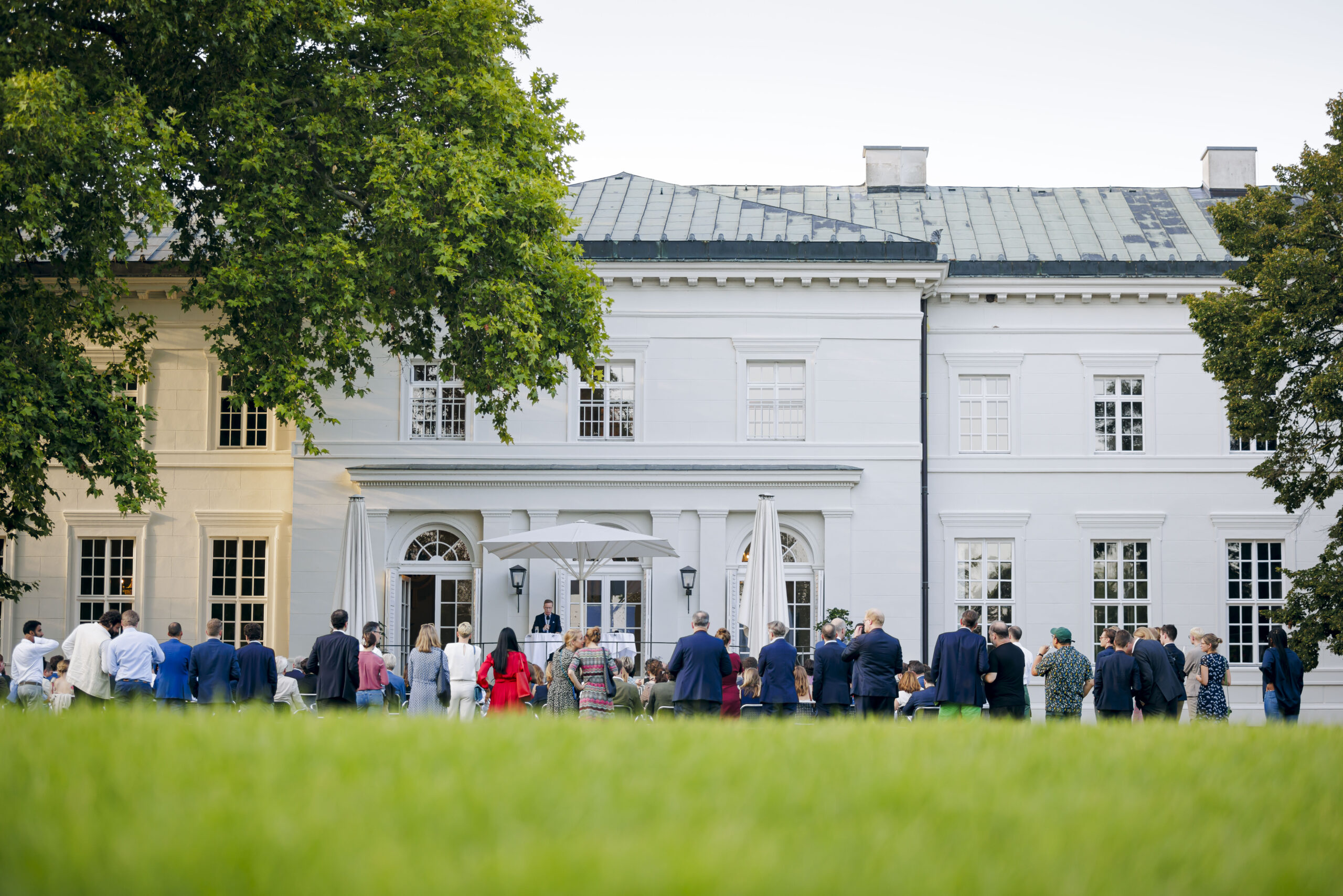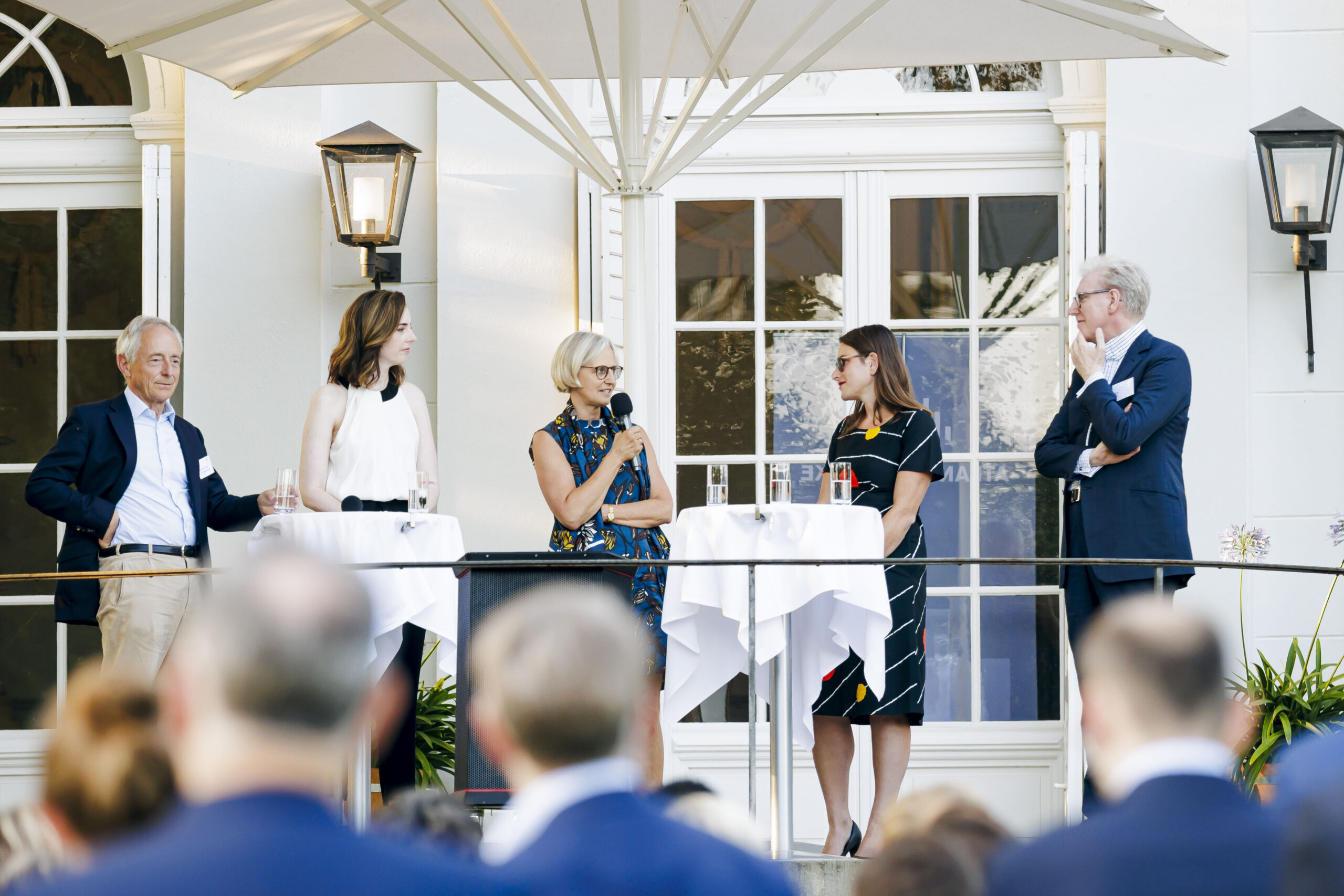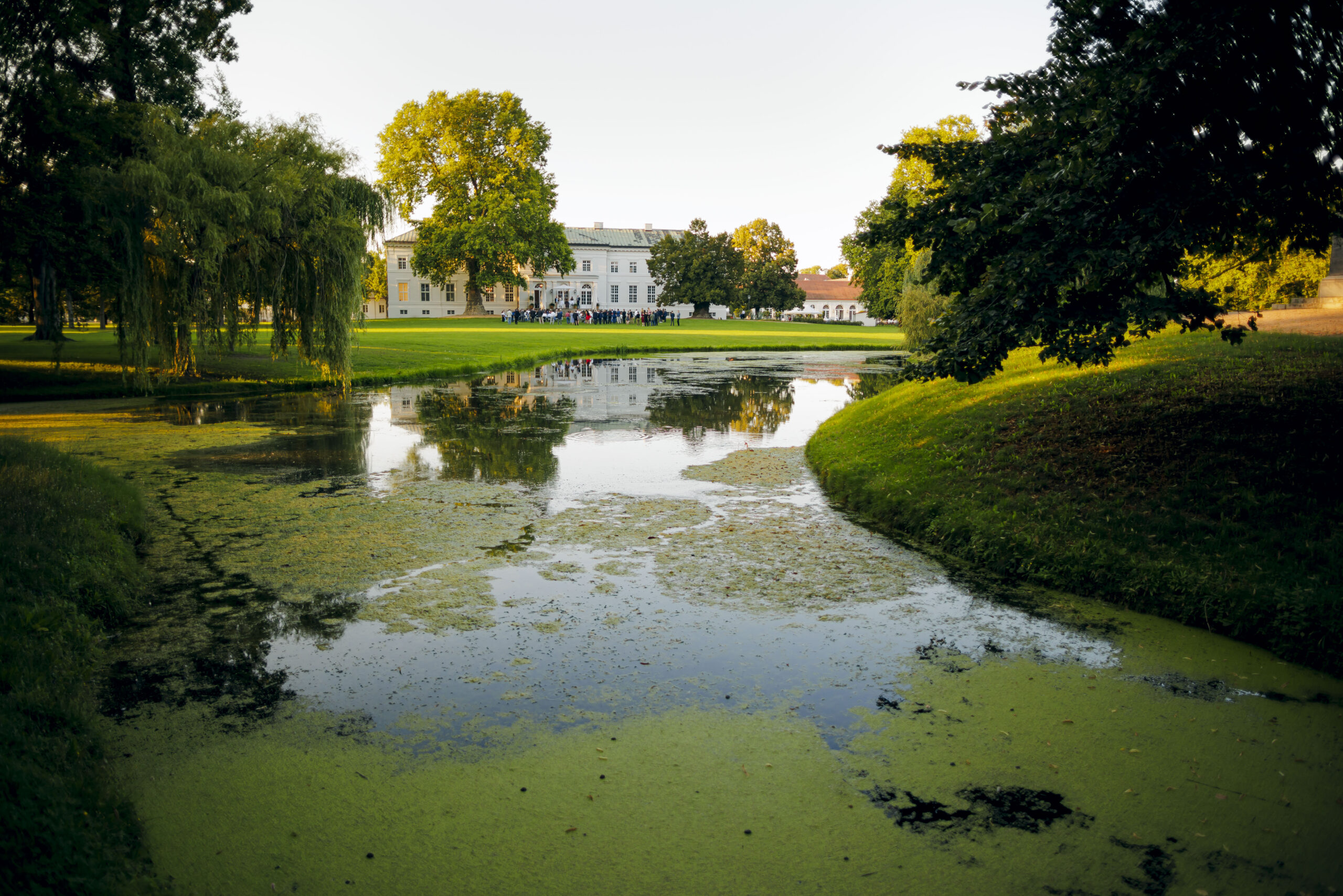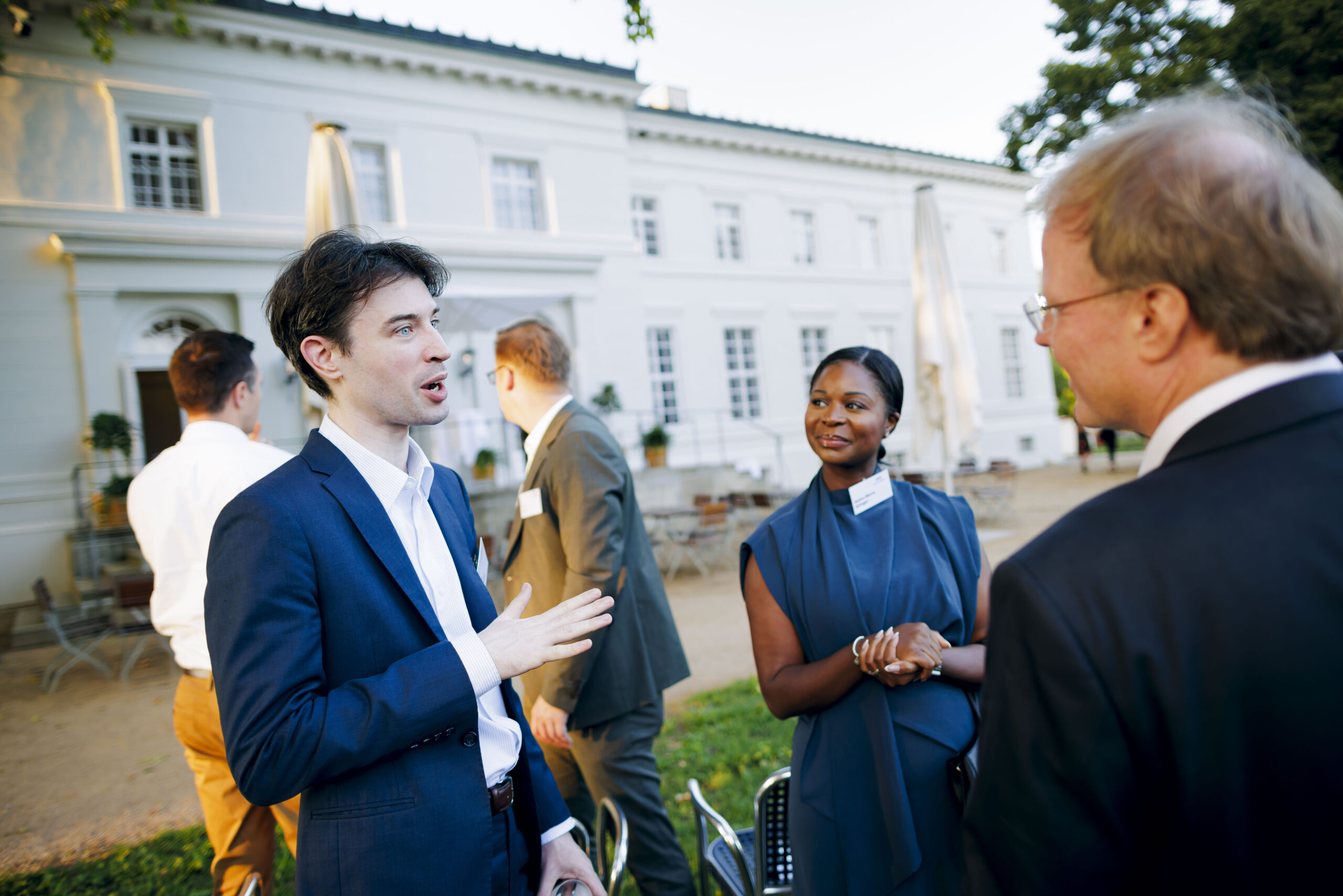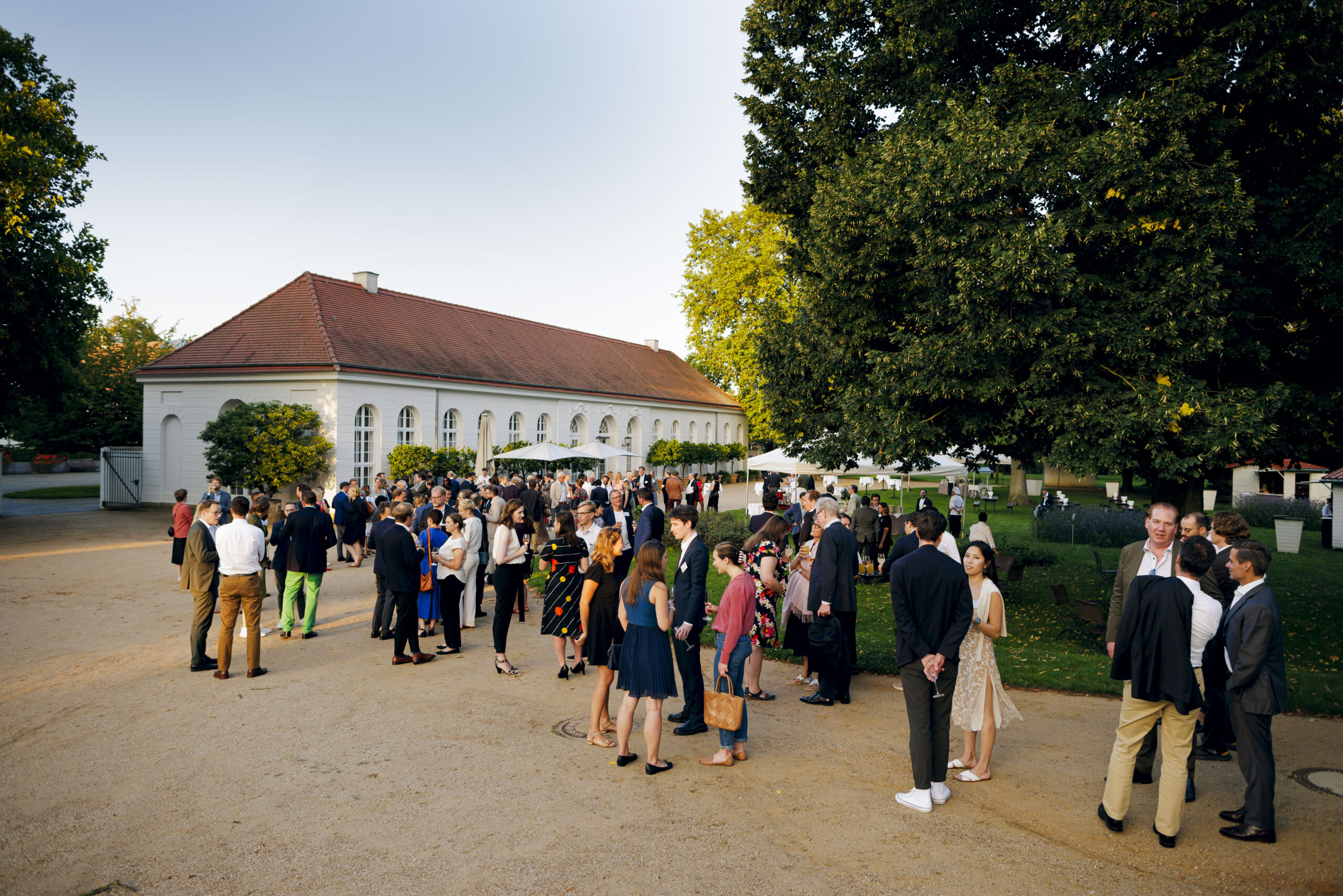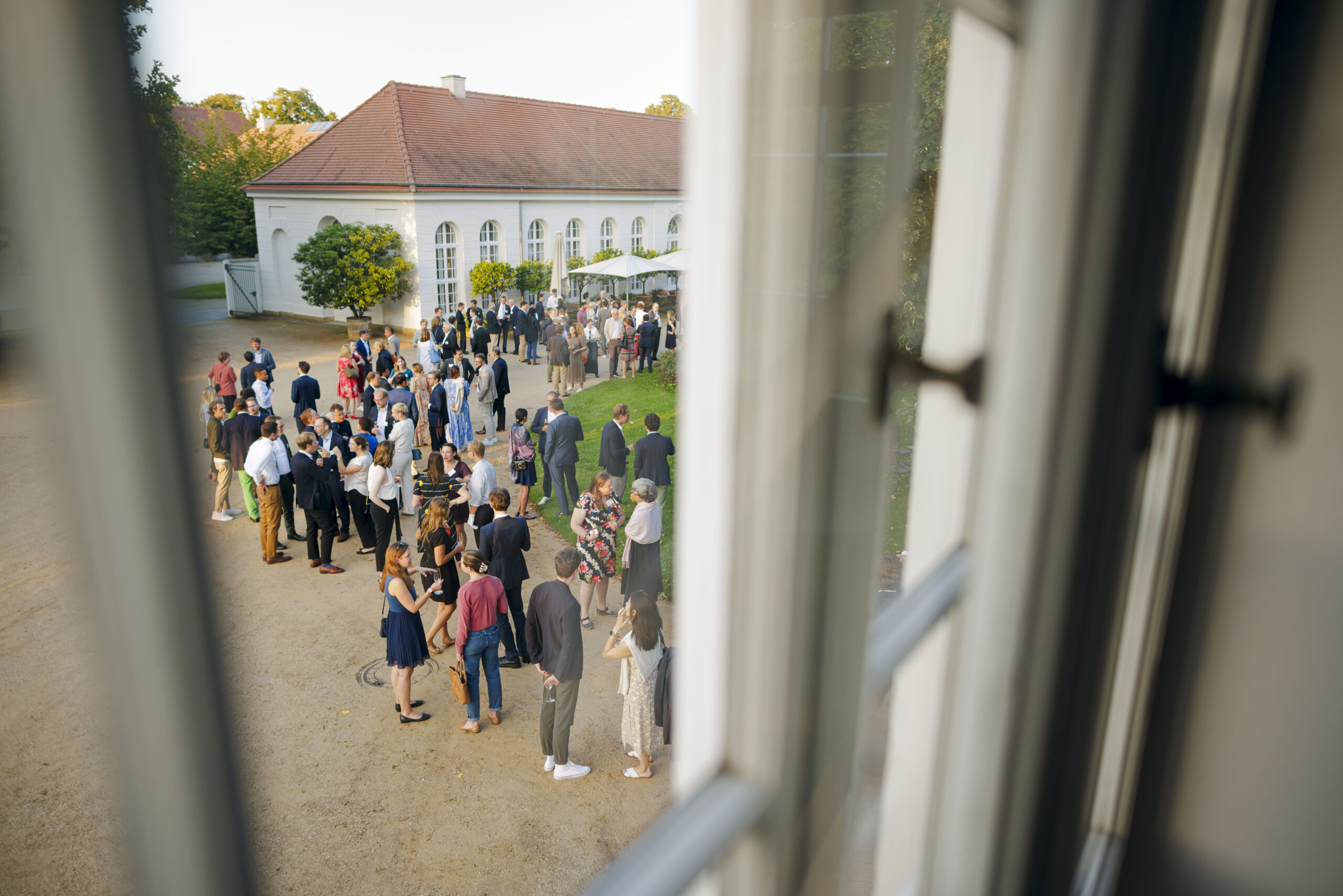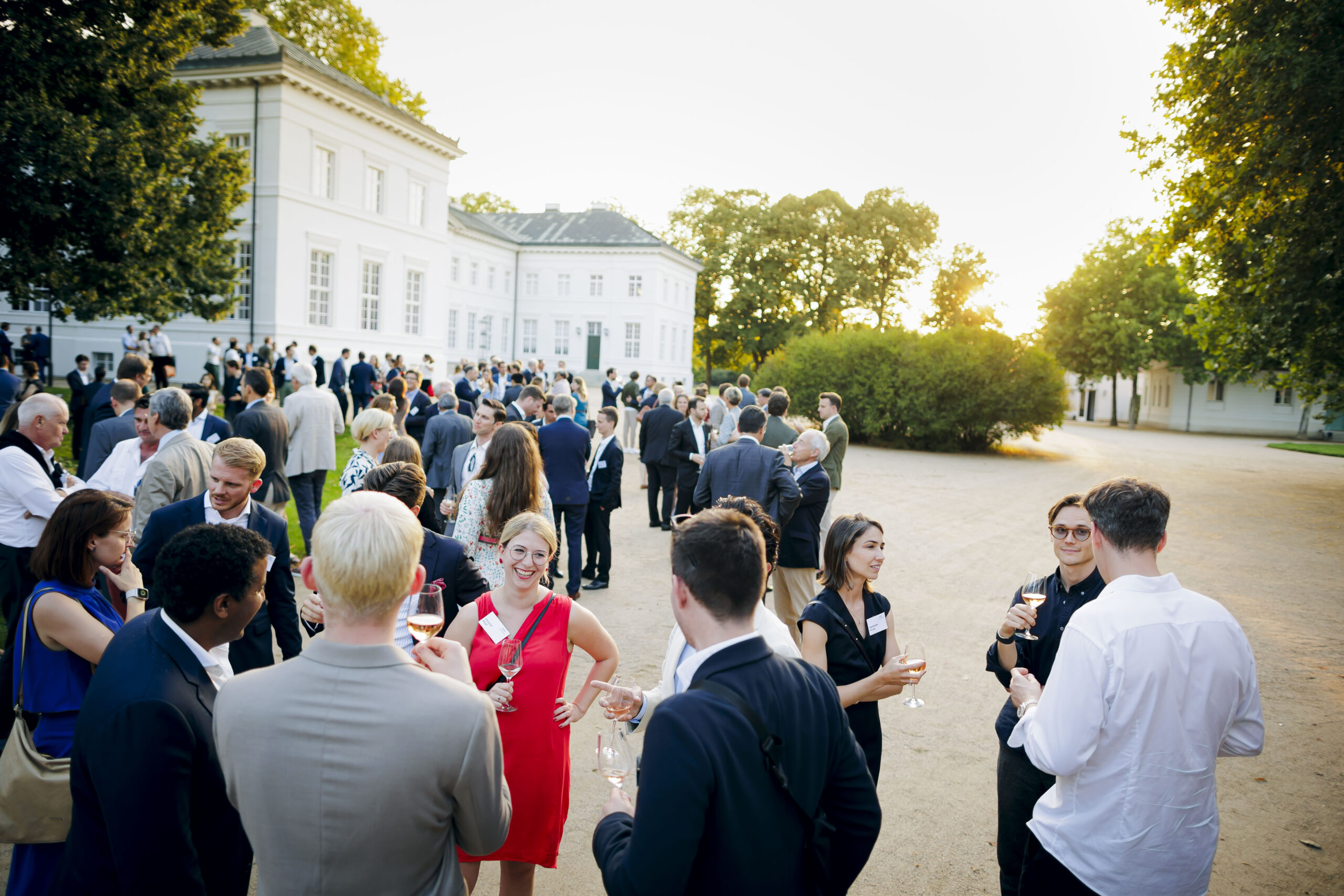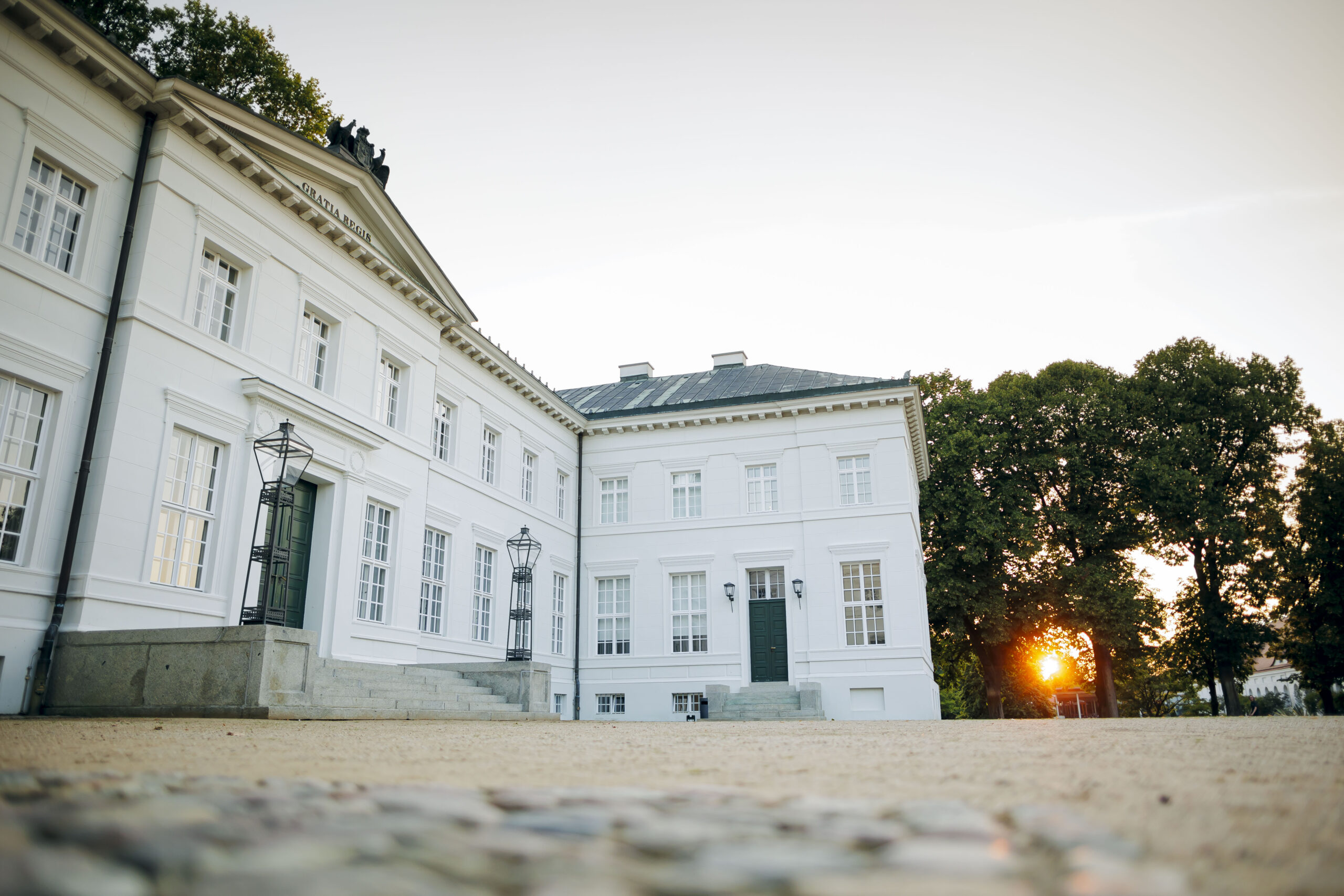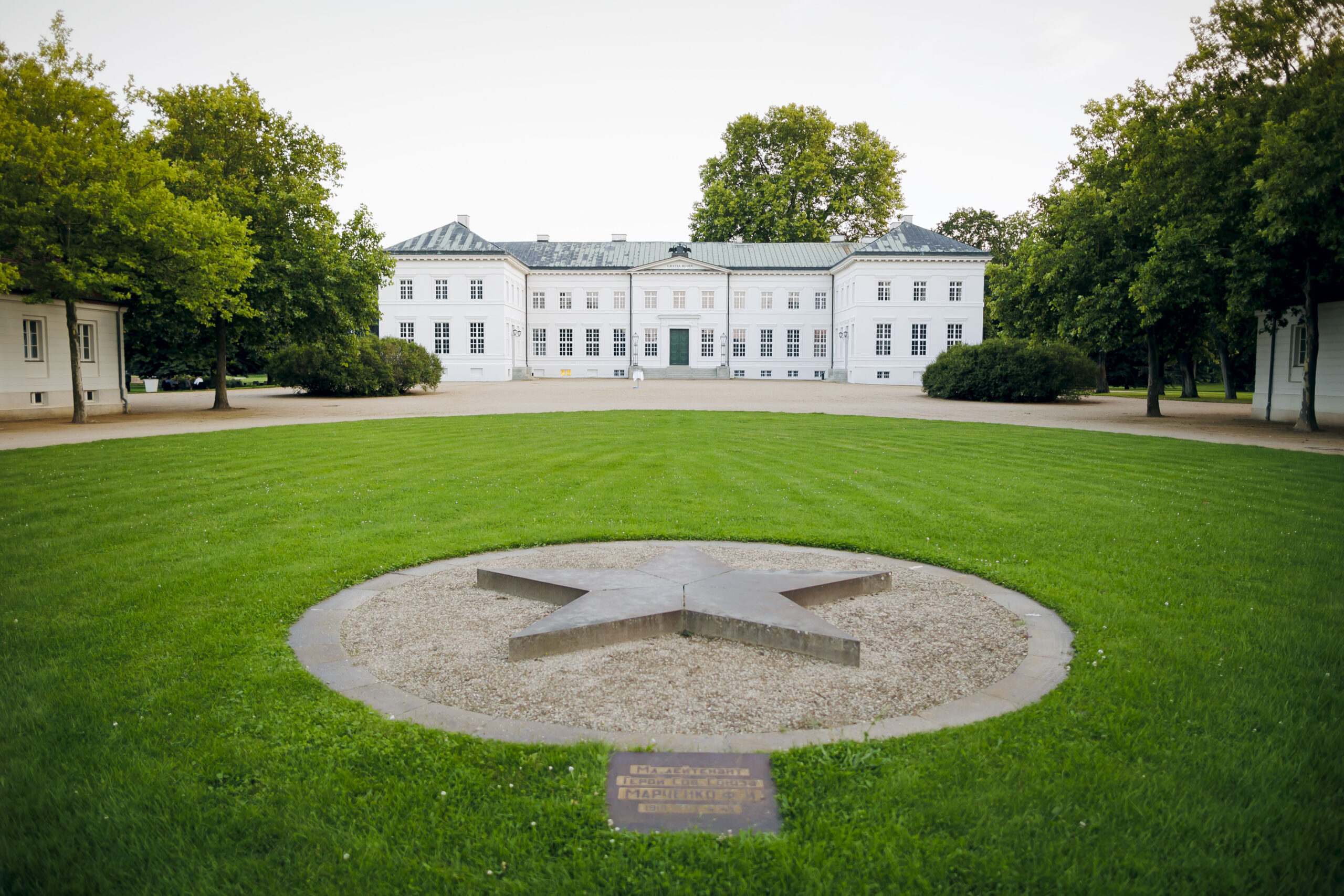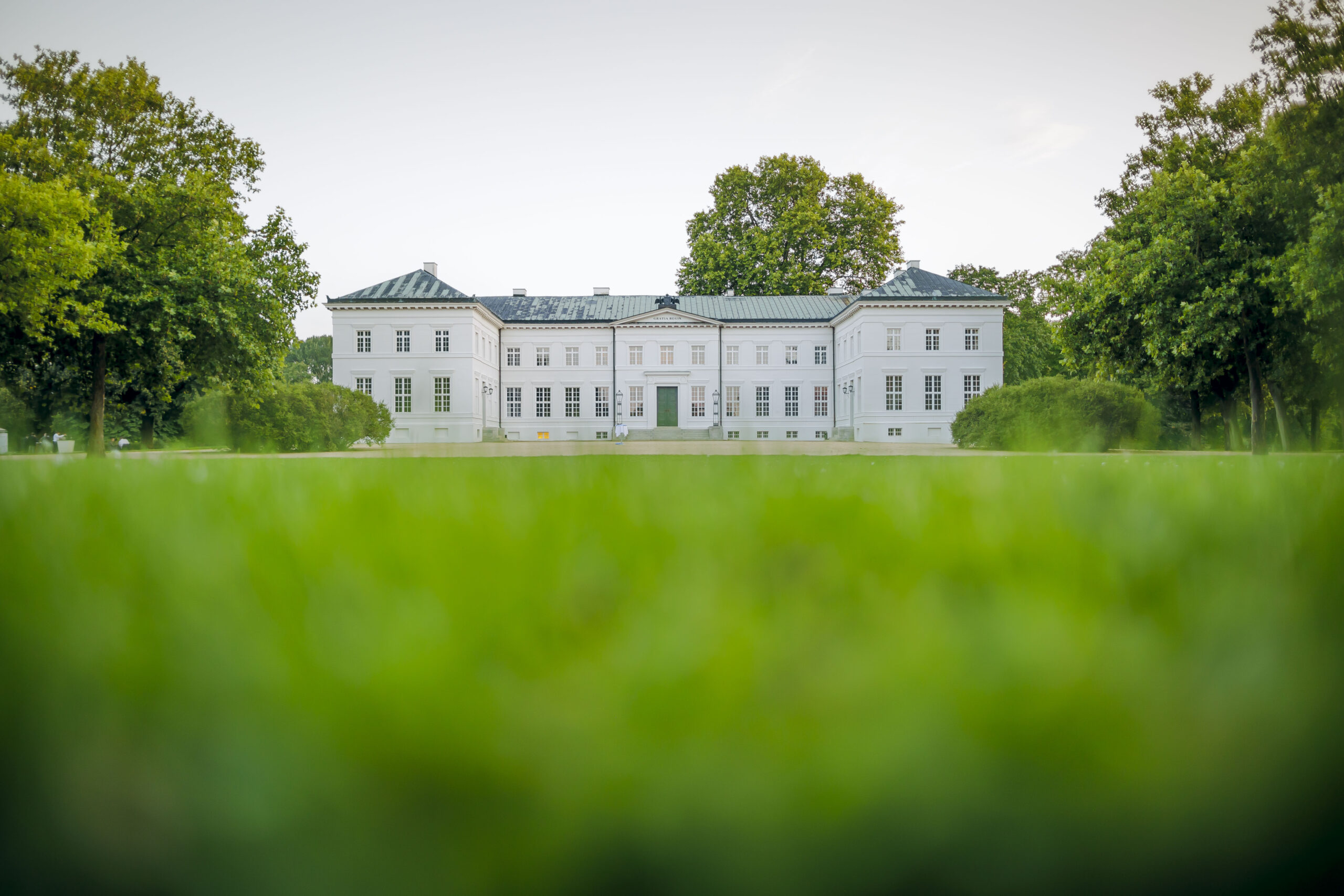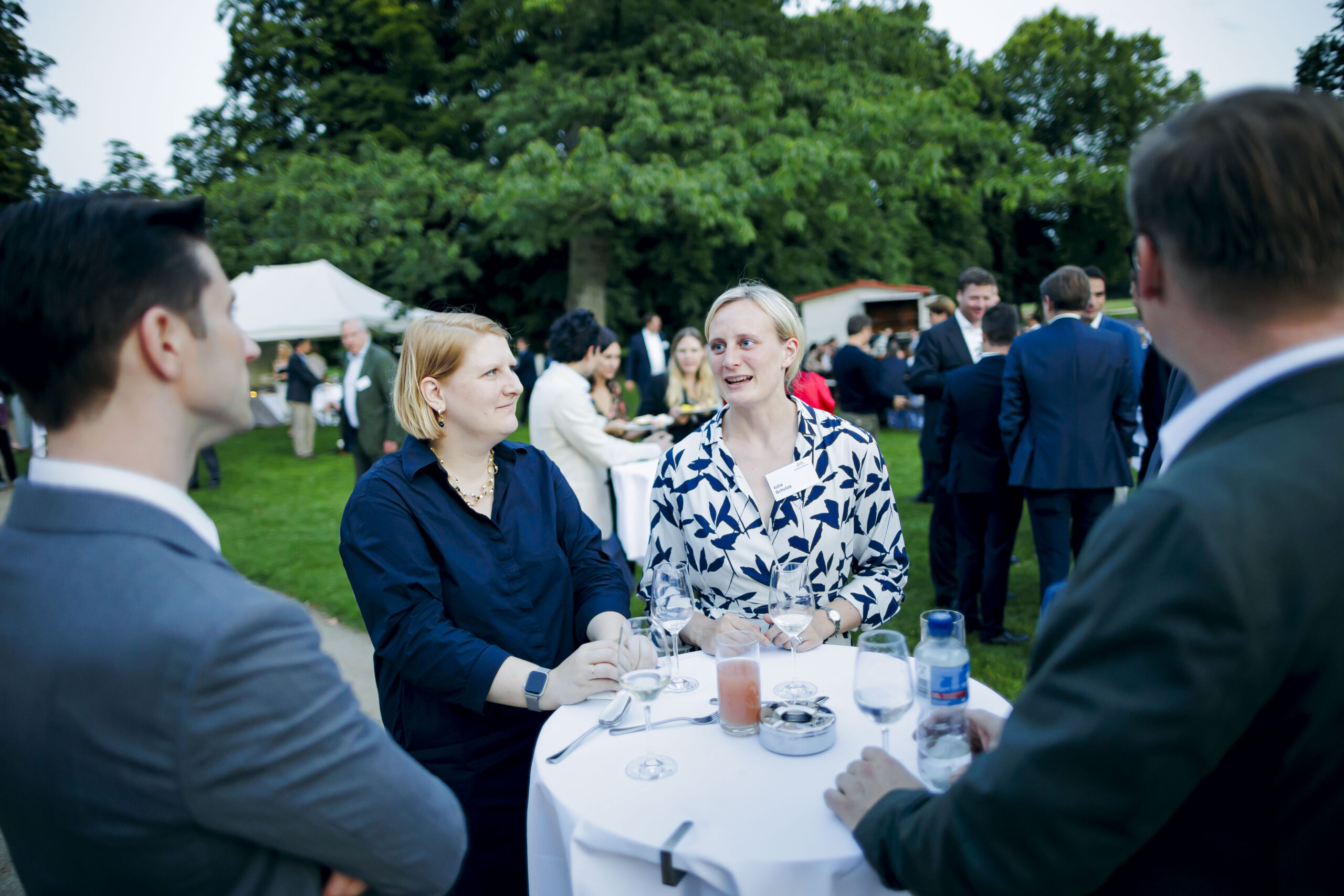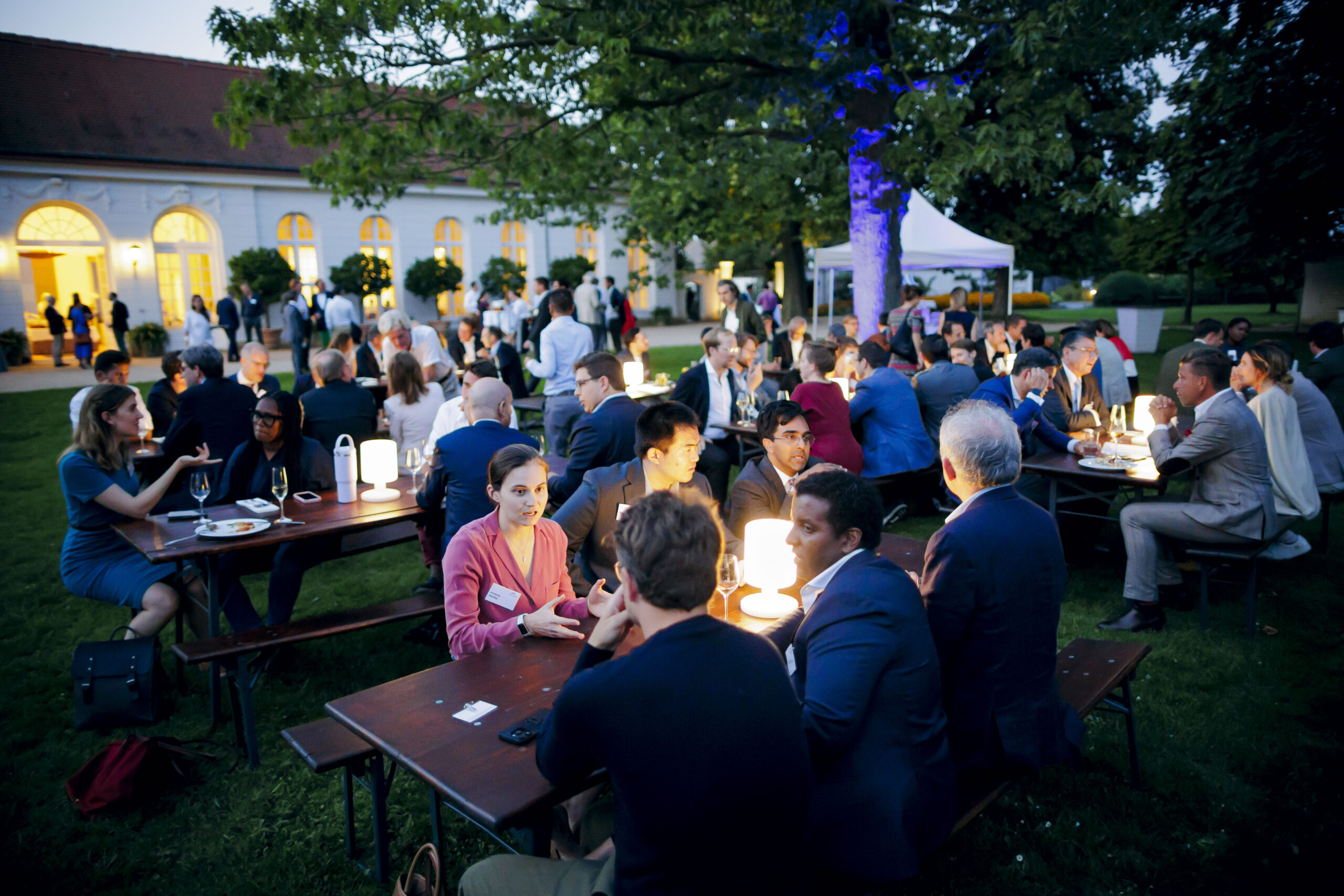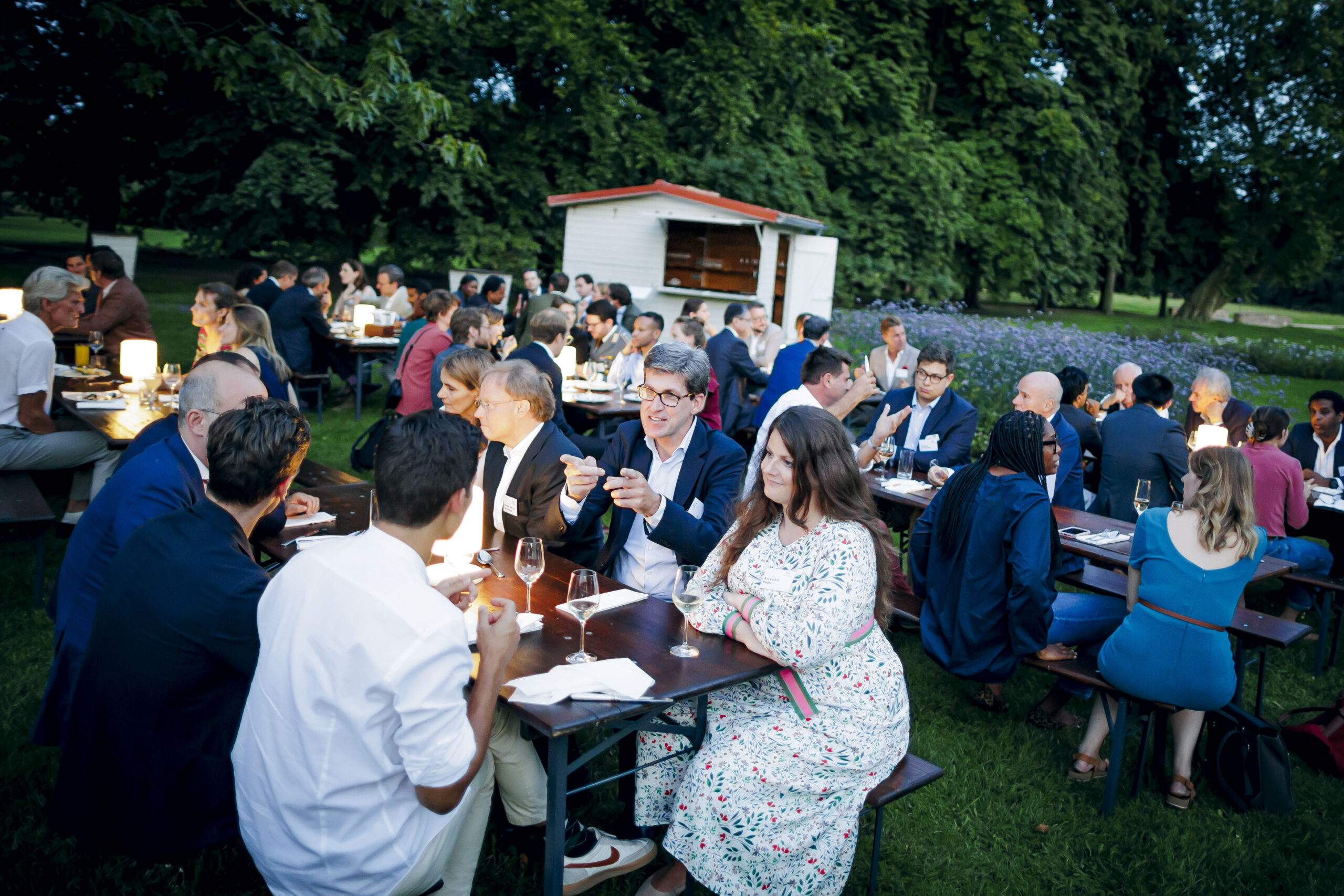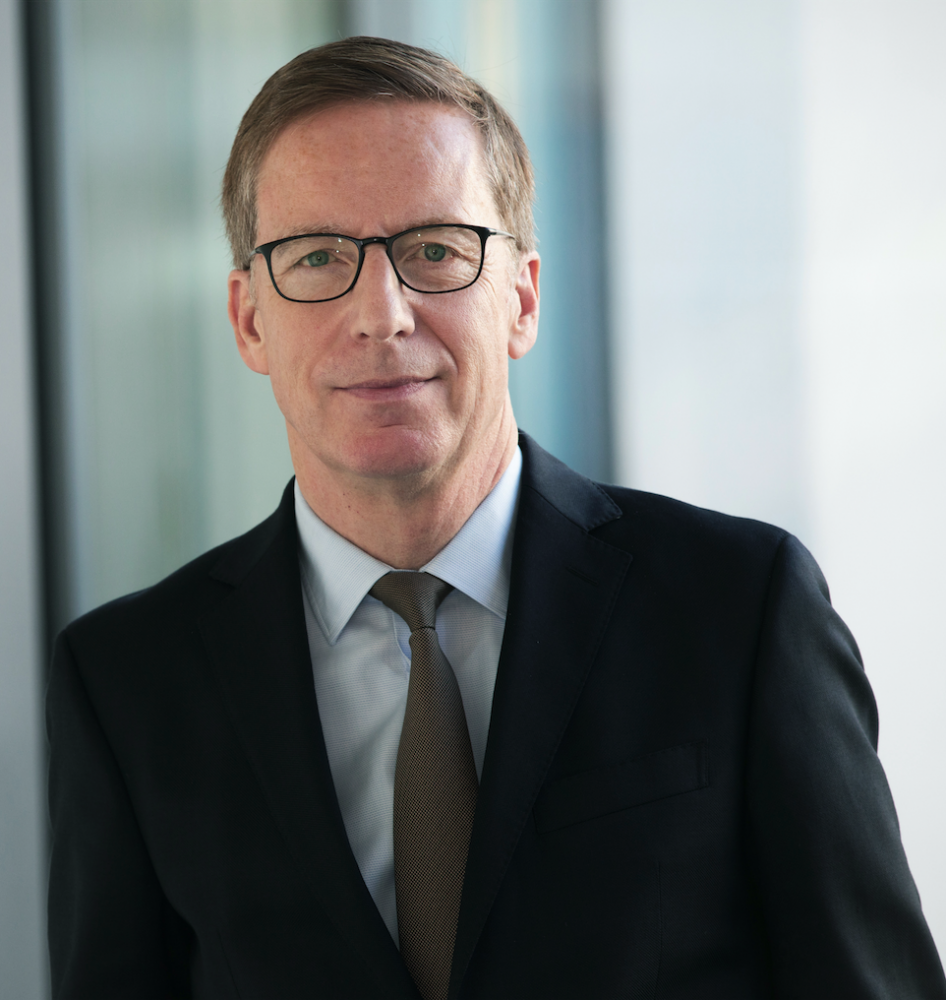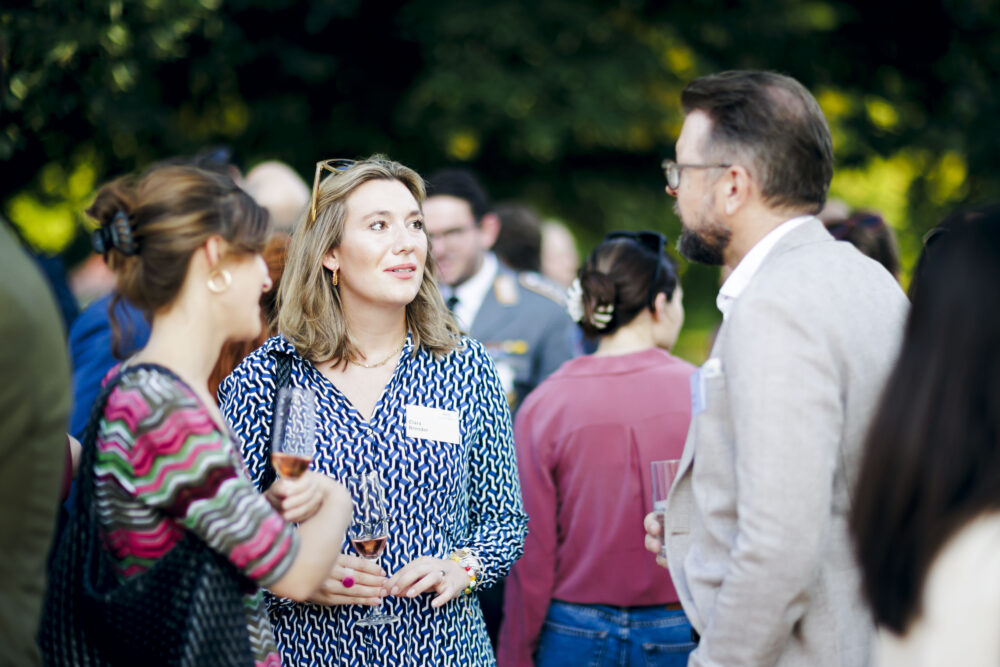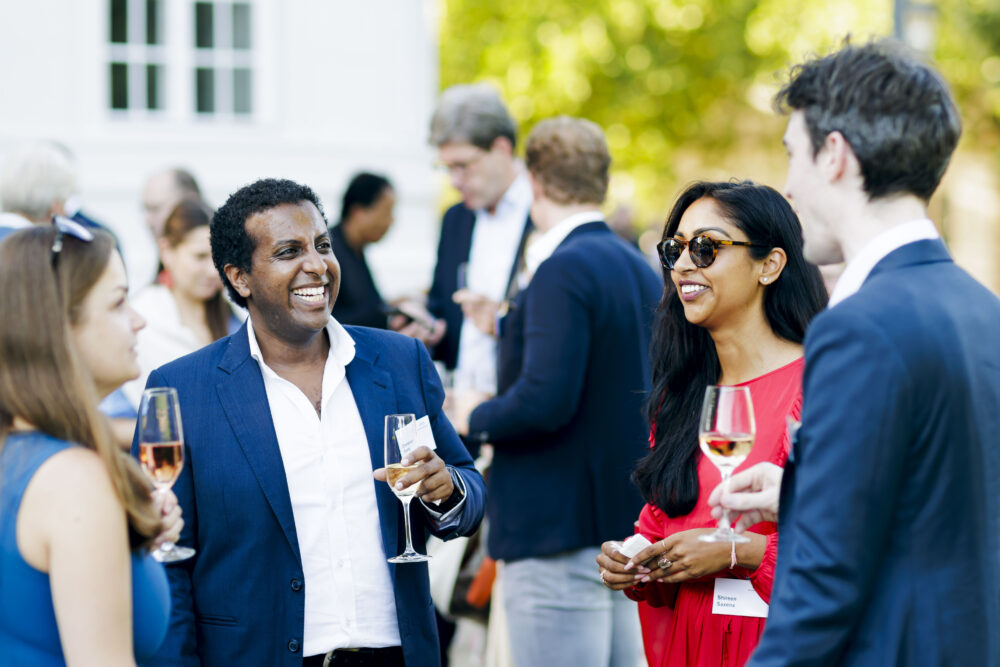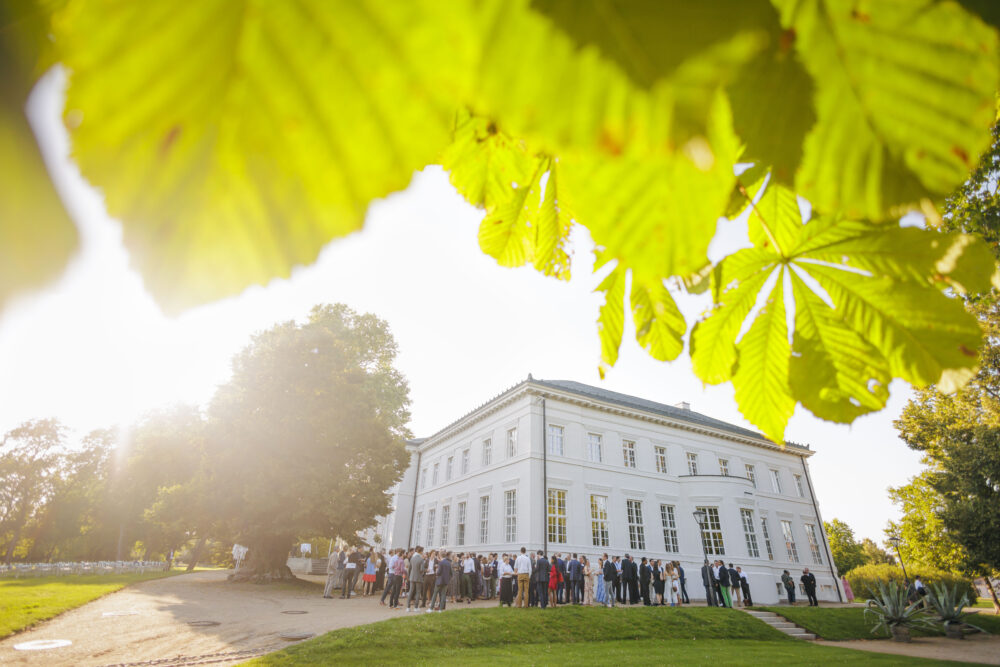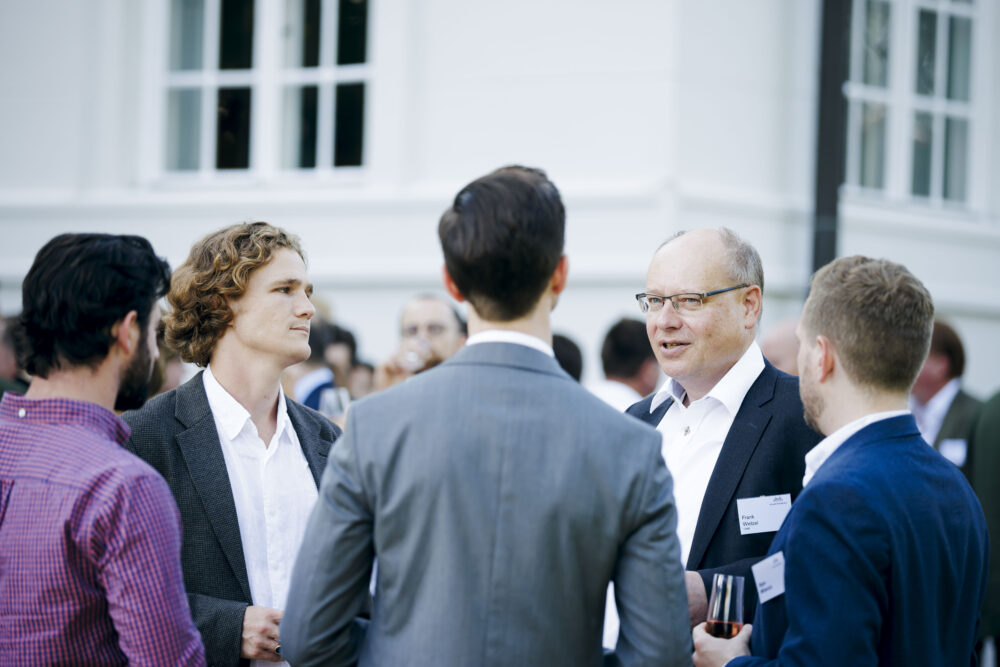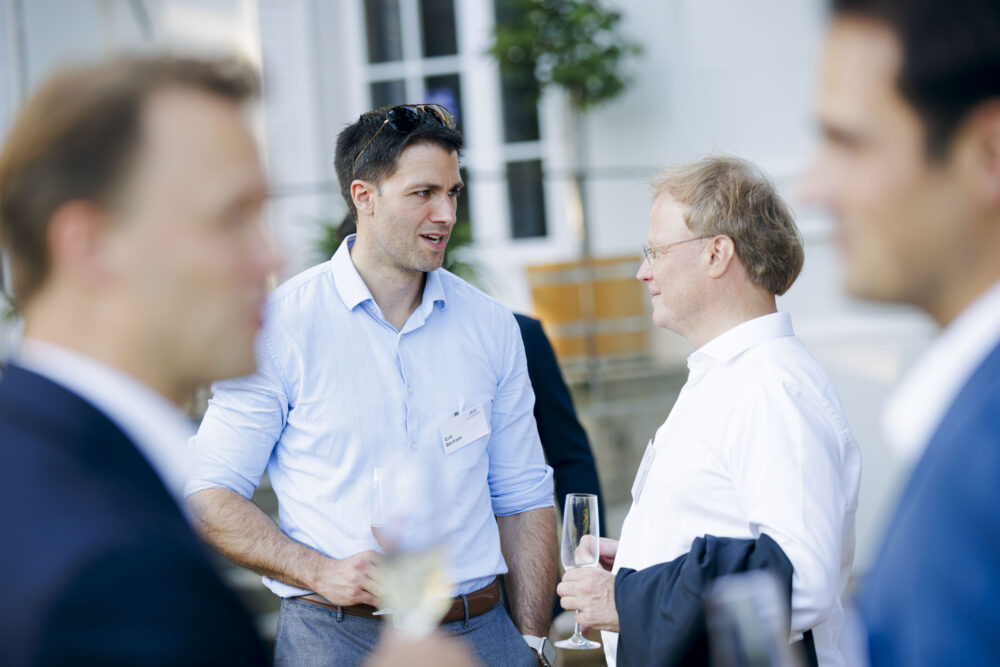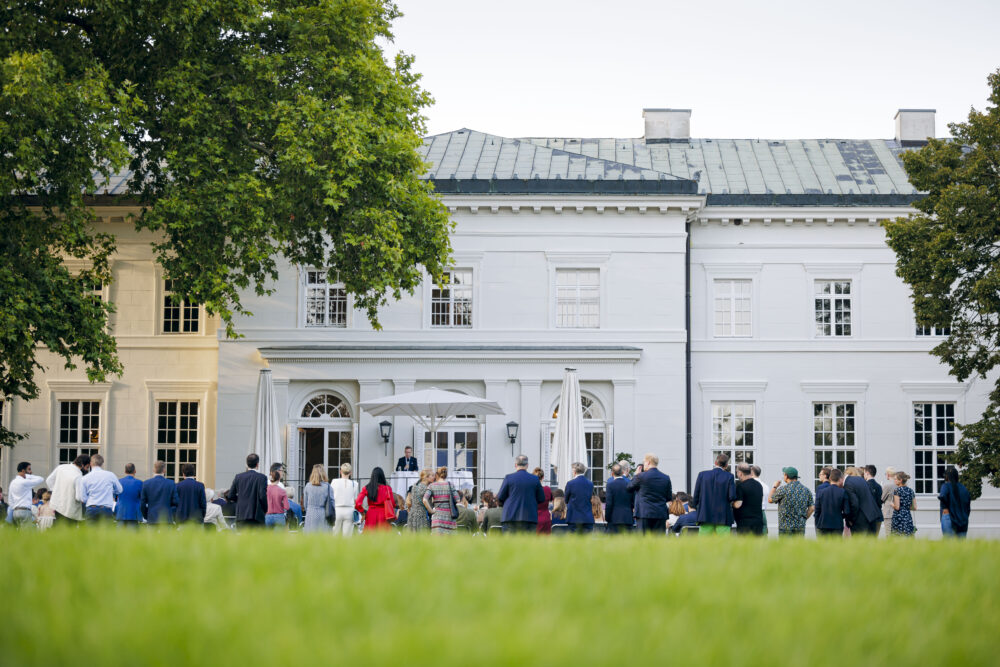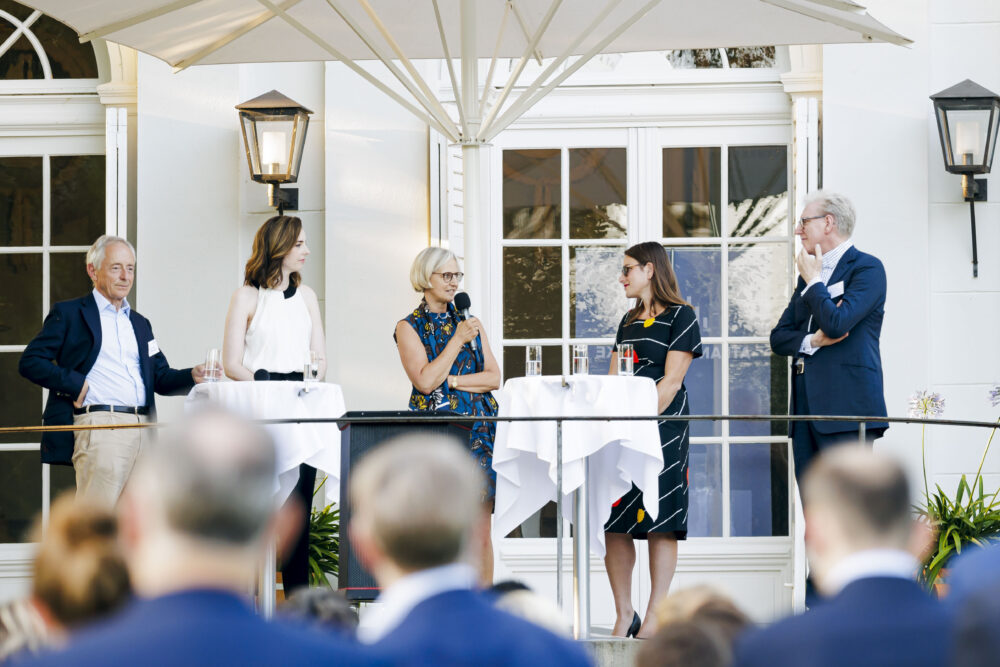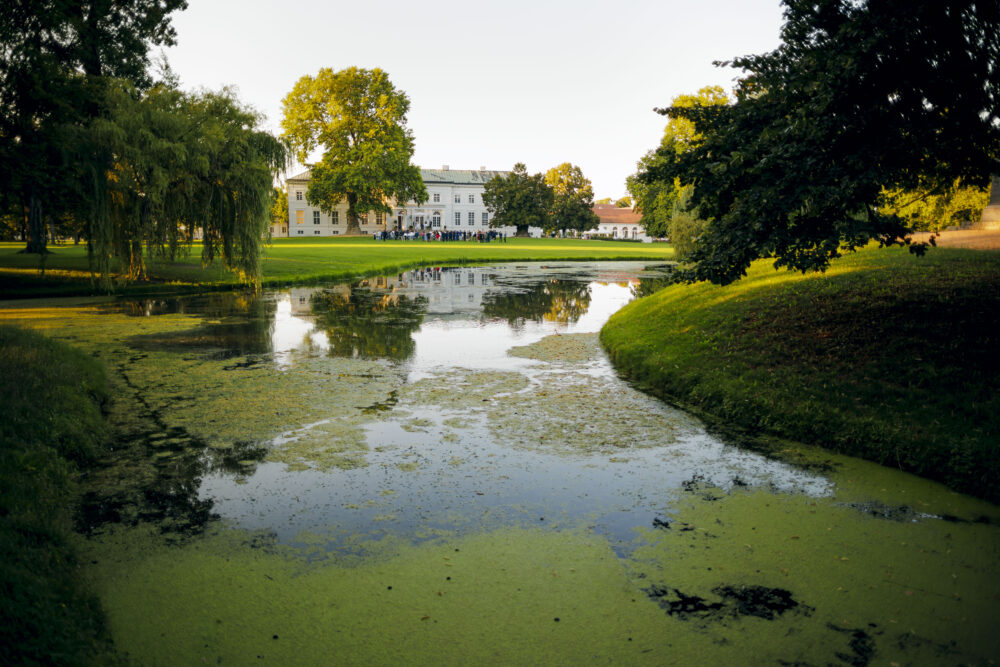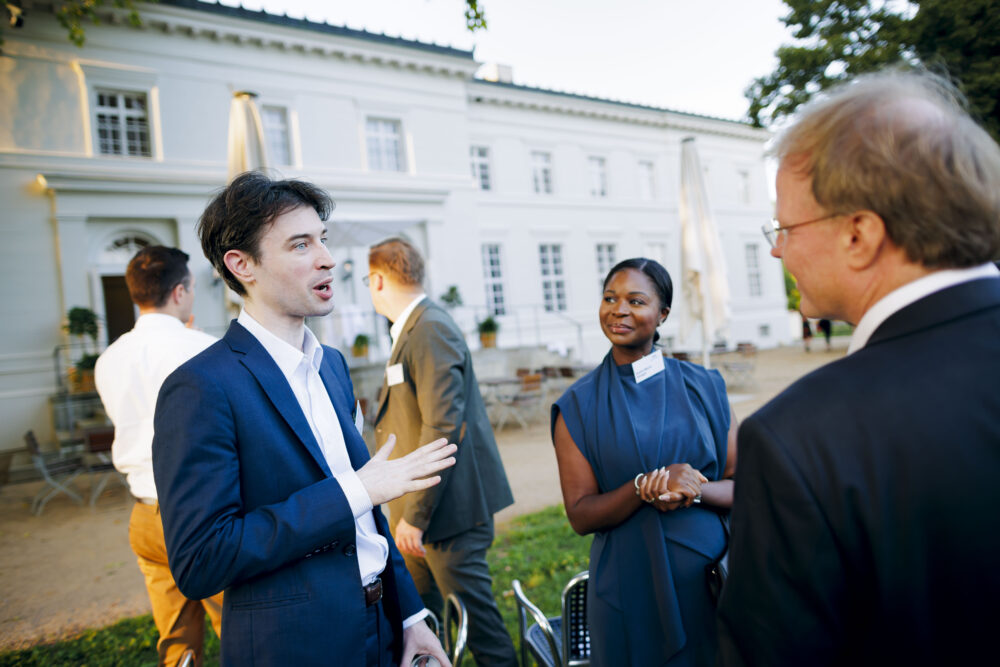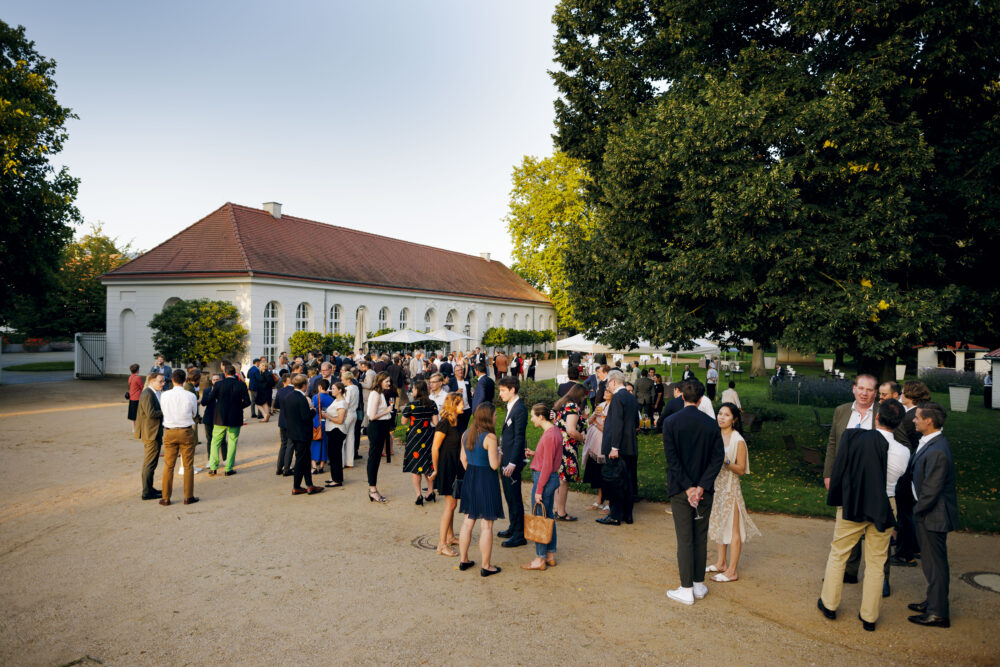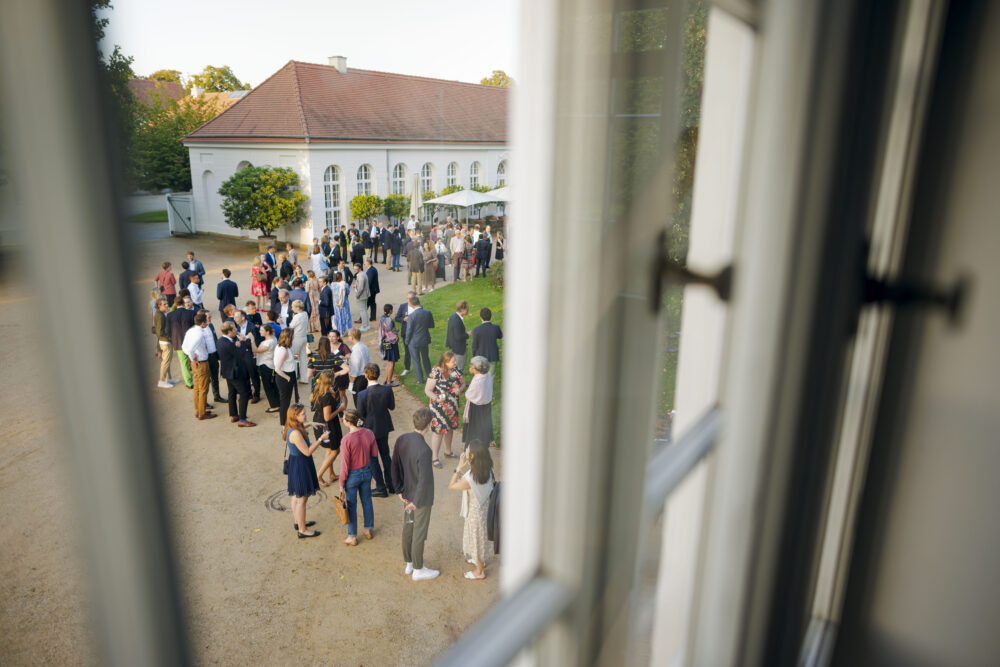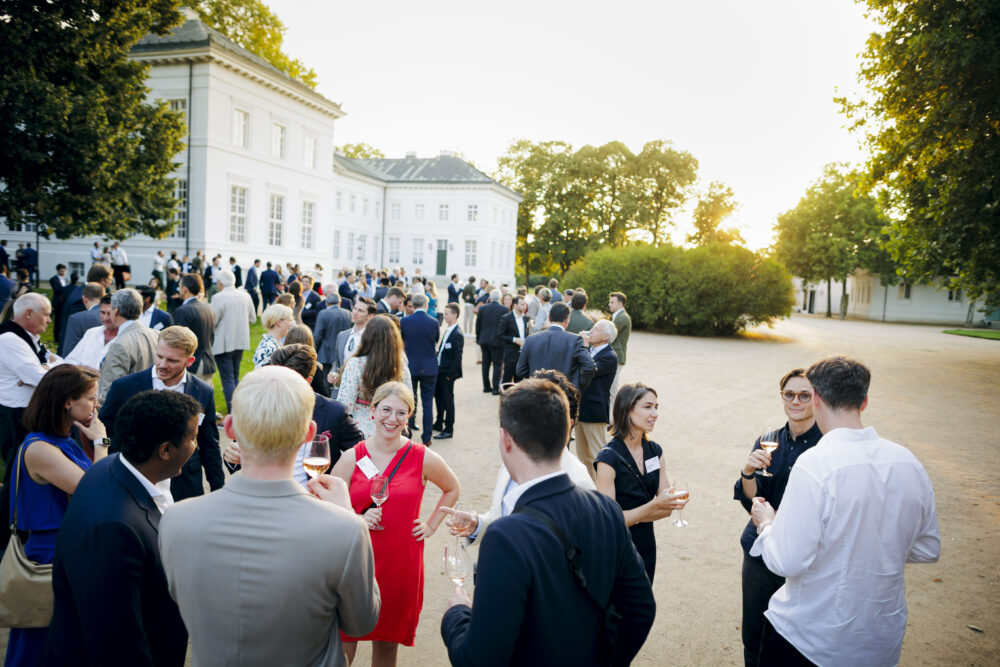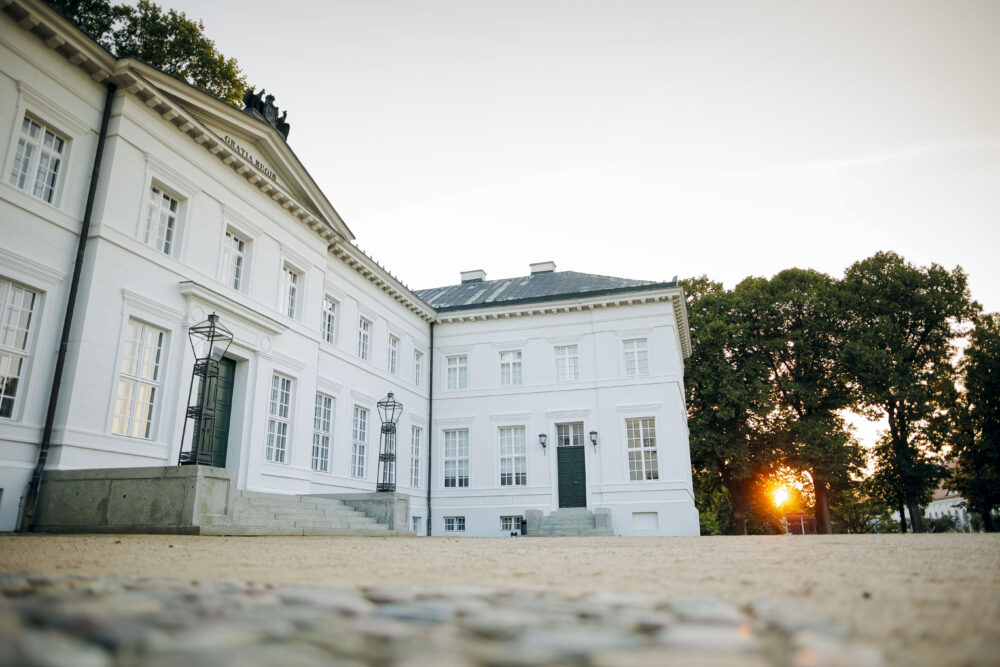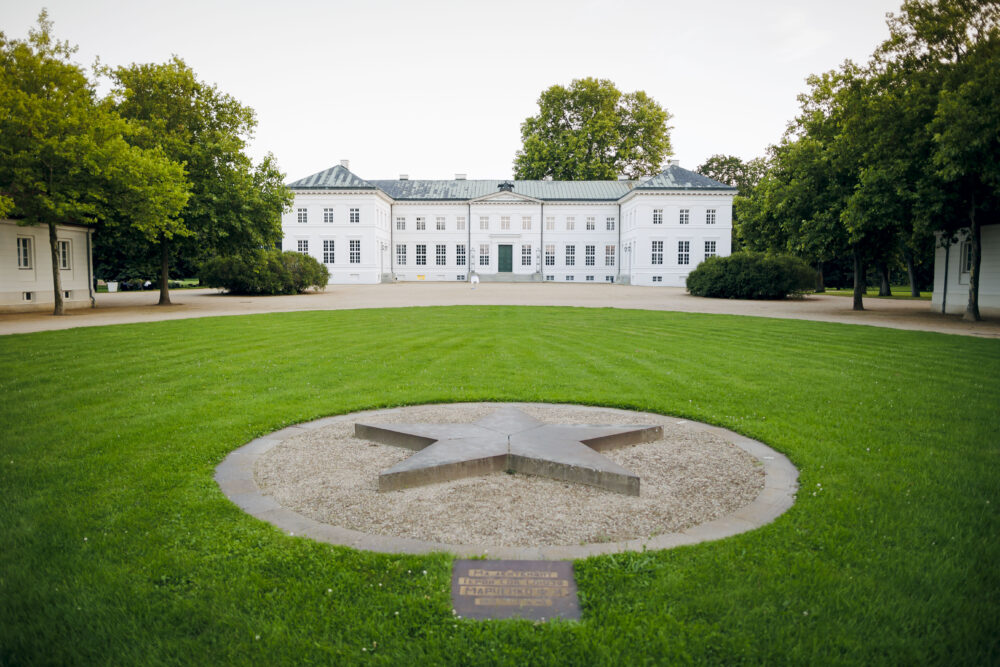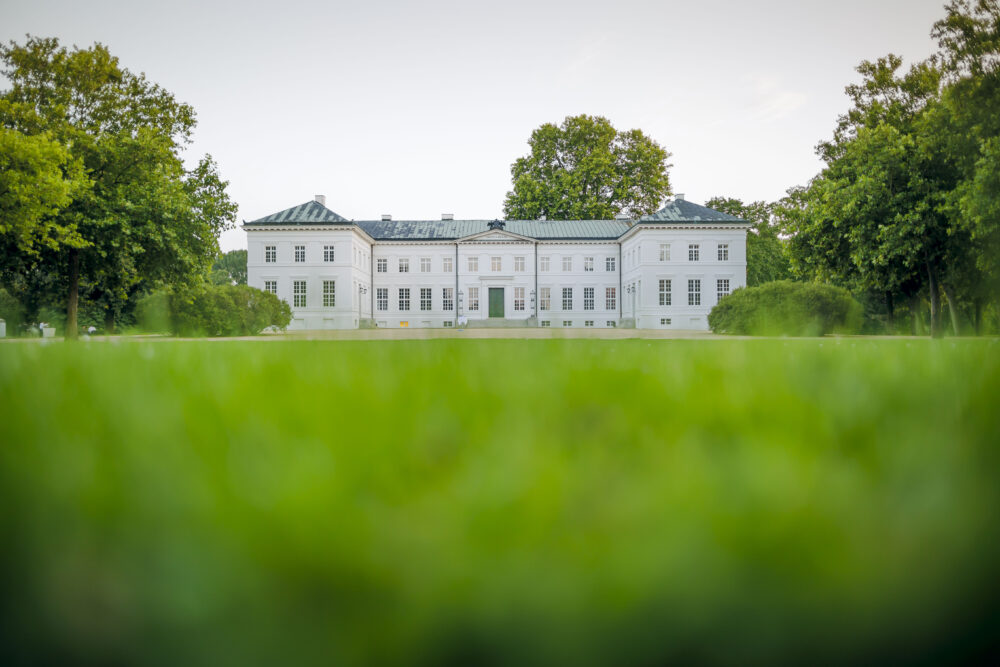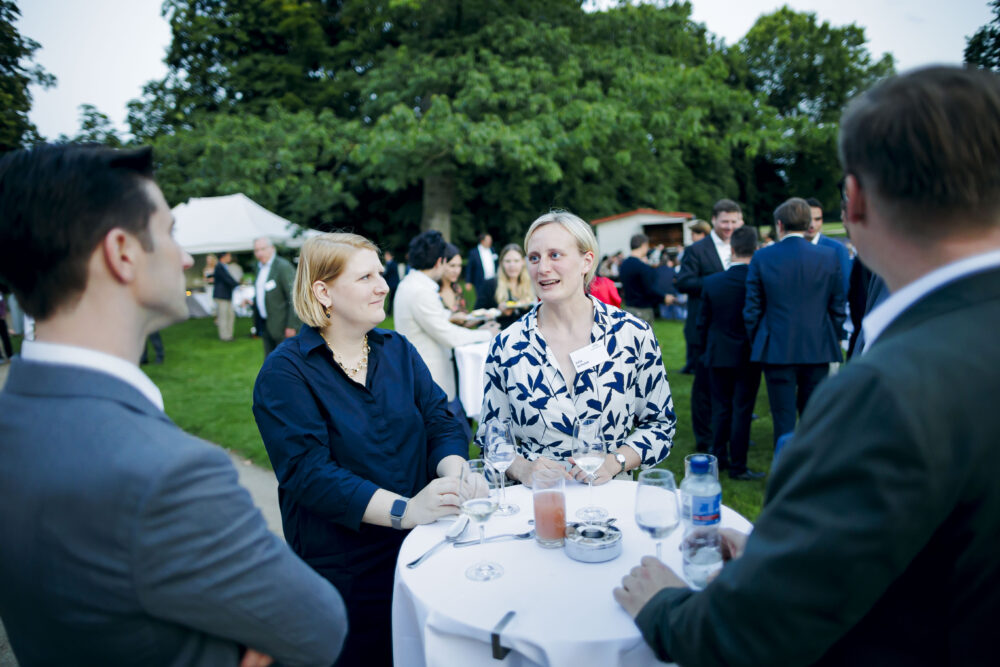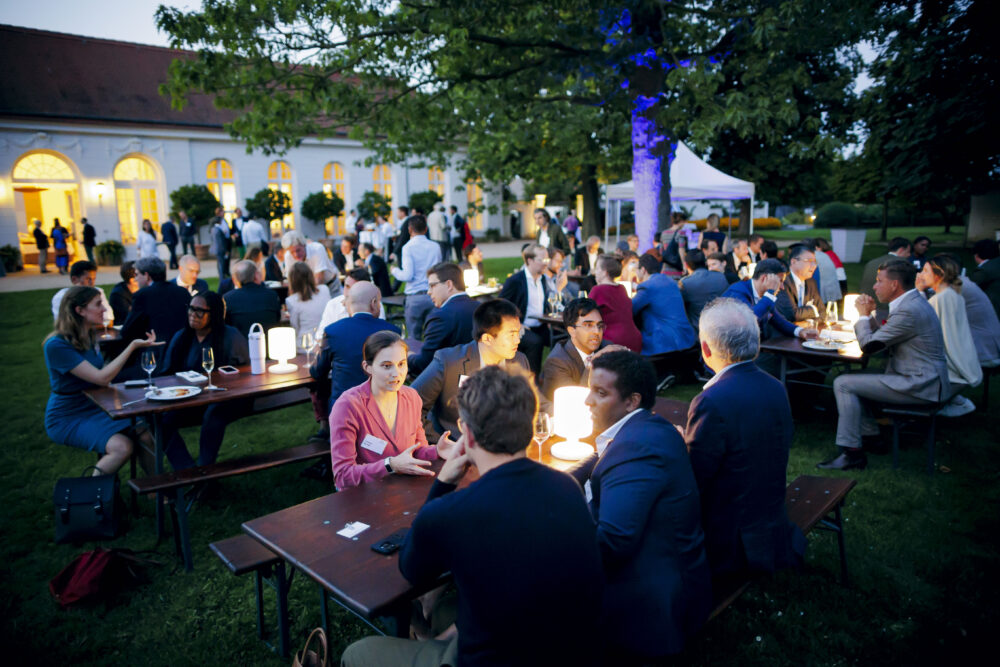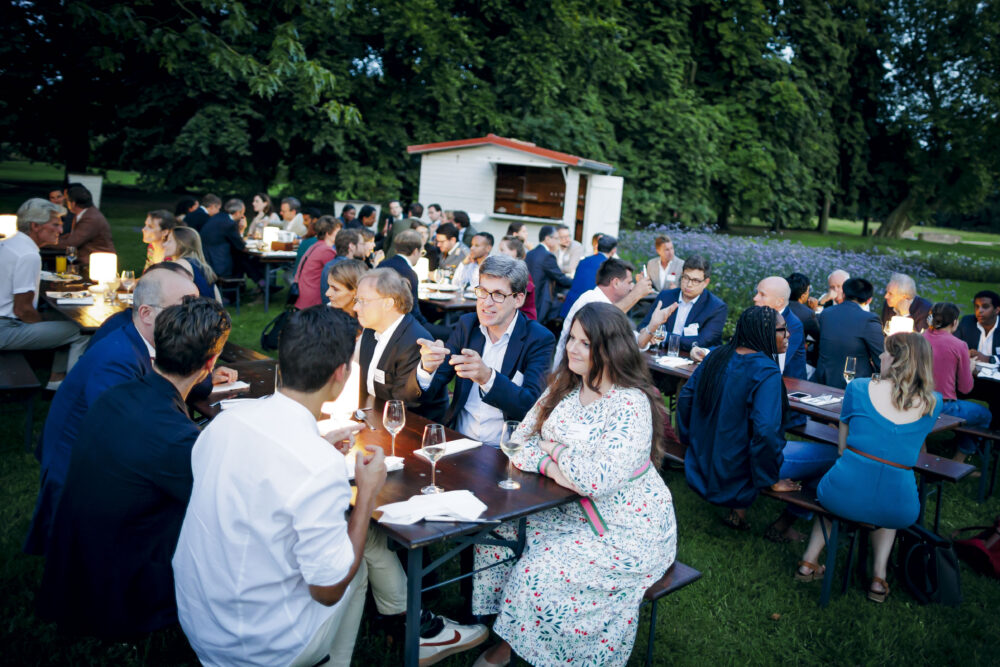50 years of joined responsibility in the democratic West
This year’s Young Leaders Conference is a special one: Atlantik-Brücke has been running this program for fifty years. Every year since 1973 we bring together 25 young high potentials each from the United States and Germany and we offer an inspiring program. What becomes of it, that is in the hands of the participants. Over the past five decades, diverse networks have emerged, friendships, communities of interest, cooperation – and above all there is the idea that the partners of the transatlantic West – for historical and cultural reasons – have a high degree of joined responsibility.
In his famous and impressive work “A History of the West” the German Historian Heinrich August Winkler[1]offers a historiographical work that sees the transatlantic space in the northern hemisphere constituted by a normative project, namely that of „the American Revolution in 1776 and the French Revolution in 1789 in the form of indispensable human rights, the rule of law, the separation of powers, popular sovereignty and representative democracy“. This normative project is „what holds the West together at its core and what makes global appeal more than ever“.
And: The project of the West also involves those who have gone astray in a catastrophic way as a second chance. In this sense, the founding of the Atlantik-Brücke in 1952 was a signal that a few years after the World War II and the catastrophe of the Holocaust Germany got the chance to return to the civilized world. In addition to the „never again“ came the other basic conviction of the second German democracy: „never alone“. And this „never alone“ finds its special expression in the founding of the Atlantik-Brücke in the year 1952 and in the start of the Young Leaders program a good 20 years later.
In addition to the „never again“ came the other basic conviction of the second German democracy: „never alone“. And this „never alone“ finds its special expression in the founding of the Atlantik-Brücke in the year 1952 and in the start of the Young Leaders program a good 20 years later.
In 1973, like today, but for different reasons, there was a great need to give new impetus to civil society exchange between Germany and the USA. The particularly challenging developments were:
-
The collapse of the world currency system of Bretton Woods. As early as August 15, 1971, the United States had unilaterally broken its promise to exchange the dollar for gold at any time. This process went down in currency history as the “Nixon shock”. The peg to the dollar became a problem for many partners because America’s inflationary monetary policy took no account of other countries. U.S. Treasury Secretary John Connally’s blunt statement, „the dollar is our currency, but your problem“ remained relevant. Foreign central banks lost interest in importing inflationary pressures from the US into their own country via fixed exchange rates. They began phasing out their interventions to support the dollar. In 1973 the Bretton Woods system finally came to an end.
-
The first and most serious oil price crisis in the autumn 1973, caused by the Yom Kippur War. The Organization of the Petroleum Exporting Countries (OPEC) cut production by about five percent to pressure Western countries for their support of Israel. On October 17, 1973, the price of oil rose from around 3 US-Dollar per barrel to over 5 US-Dollar, an increase of about 70 percent. Over the course of the following year, the world oil price rose to over 12 US-Dollar per barrel, although traded volumes had returned to normal. The global oil market has been a political market ever since.
The course was set anew in the year of 1973 in terms of monetary policy and energy policy. That required international cooperation and transatlantic partnership. The conditions for this were by no means easy and good. In the United States, President Nixon came under increasing pressure from the Watergate affair, and an impeachment became more and more likely. In the Federal Republic of Germany, Chancellor Willi Brandt was under pressure after his reputation had peaked in the light of Ostpolitik and the Nobel Peace Prize especially as the price-wage spiral had been set in motion with the wage round in the public sector (Klunker round).
During this confusing time, which was still characterized by the West-East conflict, the idea arose to develop a new format for the exchange between interested but not yet established transatlanticists in Germany and the US. In view of this attractive offer, it is not surprising that already the alumni from the first year include distinguished individuals such as Hans-Gert Pöttering, former President of the European Parliament, US Senator Chuck Schumer, and Max Warburg.
In the now fifty years of our Young Leader program, a network of committed transatlanticists has established who, coming from their different worlds of experience, cultural backgrounds, and professions, are committed to the idea of the Atlantik-Brücke in a variety of responsibilities. If the decision to set up the Young Leaders program had not been made in 1973, it would be high time now. Because global change has reached a new level, which intensifies political, social, and economic upheavals and, through the simultaneity, creates a historical challenge and shapes the concept of the turning point in time (Zeitenwende).
If the decision to set up the Young Leaders program had not been made in 1973, it would be high time now.
What we are now experiencing is nothing less than the end of European modernity, which was also a transatlantic modernity. Modernization began after 1800 with the industrial revolution and paved the way for human self-empowerment against the background of the French and American revolutions. Starting in the transatlantic West, this promise of freedom, responsibility and prosperity made its unstoppable march through the world – of course not without setbacks, not without conflicts, not without doubt. In any case, the fall of the Iron Curtain was associated with the expectation that this triumphal procession would now finally be fulfilled globally – the normative project of the West would become the undisputed standard.
President George Bush Sr. expressed the expectation in 1992, in the spirit of this modernization hypothesis, that China would inevitably become a democracy if trade was carried out intensively enough with the country. Today we know that this expectation was wrong; the system competition turned into a sharp system conflict.
Even more: the turning point in time (Zeitenwende) reveals that the world is losing its European, even its transatlantic character. Because two fundamental factors are changing that have carried this European modernization over the past two centuries: The use of fossil fuels is coming to an end in the foreseeable future, which we now must and want to approach with great strides. And with the shrinkage of the labour force potential, overcoming the Malthusian population trap associated with the industrial revolution turns into the challenge of continuously adapting the economic system to this shrinkage. We are not well prepared for this, neither in terms of economic theory nor in terms of economic policy.
Therefore, it is even more important that we in the democracies of the West exchange experiences on how this double transformation can succeed, how climate neutrality can be achieved with a shrinking population. We need all the advances in efficiency that are conceivable. And they will have the best chance of being embedded in civil society in western democracies. However, this only becomes an attractive role model for other regions of the world if one’s own learning is critically monitored. The Young Leaders Program is of particular importance here, as an institutionalized bridge of experience across the Atlantic.
As if that weren’t enough to intensively strengthen the exchange in the transatlantic West, the Russian aggression is challenging us in a new way, at least one that we thought was overcome. The Russian war of aggression against Ukraine may be the latest global conflict that has its origins and development in Europe and its history and that asked other regions of the world to take a position. However, many states in the Global South are already unwilling to sanction Russia’s blatant violation of international law in the same way as the states of the transatlantic West are doing. This reflects the tectonic shifts in world politics.
The important periods of worldwide economic exchange and interaction were always dominated by a political hegemon. This was true in the 19th century with the Pax Britannica and in the 20th century with the Pax Americana. This will no longer apply to the next phase of globalization, the interests are too different, the economic perspectives are too diverse, and the global power competition is too important. Despite all the political changes in the USA, Barack Obama’s Pivot-to-Asia strategy remains a challenge for the Europeans, because it not only reflects a change in political priorities, but also the socio-structural change resulting from the continuous shift in the centre of population of the USA from the north-east to the southwest. The majority of Americans are now closer to the Pacific than to the Atlantic.
The world is drifting apart differently than expected 30 years ago, the market economy does not automatically lead to democratization, and it also lives without civil society – at least as far as we are experiencing the process. The transatlantic West, on the other hand, stands for exactly this triad: democracy – market economy – civil society. This results in our special responsibility in the changing times.
For more and more people, the feeling of being overwhelmed weakens the hope of being able to reap the fruits of freedom. Our daily life is subject to interventions based on decisions made far from home. This fact fuels resistance to the networks and dependencies of globalization.
Of course, we are also under pressure in our societies: right-wing populism, disappointment with democracy and mistrust of institutions are the hallmarks of a development that can only be observed in nuances in almost all western democracies. As at the end of the 19th century – the time that went down in the history books culturally interpreted as the fin de siècle – we are once again stating exhaustion and tiredness with slight irritability as a socially dominant phenomenon. For more and more people, the feeling of being overwhelmed weakens the hope of being able to reap the fruits of freedom. Our daily life is subject to interventions based on decisions made far from home. This fact fuels resistance to the networks and dependencies of globalization.
Globalization is inextricably linked to the creation of mutual – mind you, mutual – dependencies. This may sometimes be opaque and trigger resistance. On the other hand, only transparent communication, personal experience and „friendly conversations in public spaces“ (Hannah Arendt) can help. This is the only way we can prevent hierarchies from destroying the networks again.[2] And we have to be careful not to undermine globalization ourselves through controls, barriers and bans for fear of resistance to it. When the freedom of others causes fear and opposes the space for one’s own active, positive freedom to shape things, then it is all the more important to live together democracy, market economy and civil society.
In this tangle of our time, orientation is even more necessary. For us Germans, the following still applies: “never again” and “never alone”. For this we are referred to the functional core of our institutions and systems, and it is of great importance to win new partners and friends in the world again and again. That is the current special purpose of the Atlantik-Brücke’s Young Leaders Program, but also of our teachers travels and the New Bridge Program started in 2021. Victor Hugo said, „Nothing in the world is so powerful as an idea whose time has come“. That was true of the Young Leaders program in 1973, and it is true today.
I wish all past and future participants continued interesting conversations, insights, contacts, and new friendships. Or in the words of the German historian Heinrich August Winkler: “The history of the West is an open story, far from being told, because the subversive power of the ideas of 1776 and 1789 is far from exhausted and the normative project regarding the universality of human rights is unfinished. … The West would give itself up if it accepted this state of affairs.” That’s why the Atlantik-Brücke continues to be so contemporary. But unlike for a long time since 1952, we must stand up for the normative project of the West in our own Western societies. To do this, we need each other just as much as we used to in the exchange with third parties. You could also say that this is the new joint mission.
Today, this provides an answer to the question of the content of the transatlantic relationship, the answer to which Henry Kissinger so urgently demanded thirty years ago: “We can speak about the necessity of German-American friendship, European unity, or Atlantic partnership, but the real challenge is that any relationship that does not define what we can do together is doomed to becoming formalistic and, after a while, drained of content. The challenge of our period, then, is not to affirm our friendship, but to affirm what actions we can take together and the purposes we can fulfil”.[3]
[1] Heinrich August Winkler: Geschichte des Westens. Four Volumes, C.H. Beck: Munich 2009-2015.
[2] Niall Ferguson, The Square and the Tower: Networks, Hierarchies and the Struggle for Global Power. Penguin: New York 2018.
[3] Henry A. Kissinger, Thoughts on Europe, America and “The New World Order”. Arthur Burns Lecture, Atlantik-Brücke, Hamburg, May 25, 1992.
Prof. Dr. Michael Hüther is the Director of the German Economic Institute and Vice Chairman of Atlantik-Brücke. You can learn more about him here.

